Audio Articles
Read and listen to narrated audio articles highlighting work from Johns Hopkins APL. Articles are also available as episodes on Spotify and Apple Podcasts, providing convenient, on-the-go access.
Read and Listen
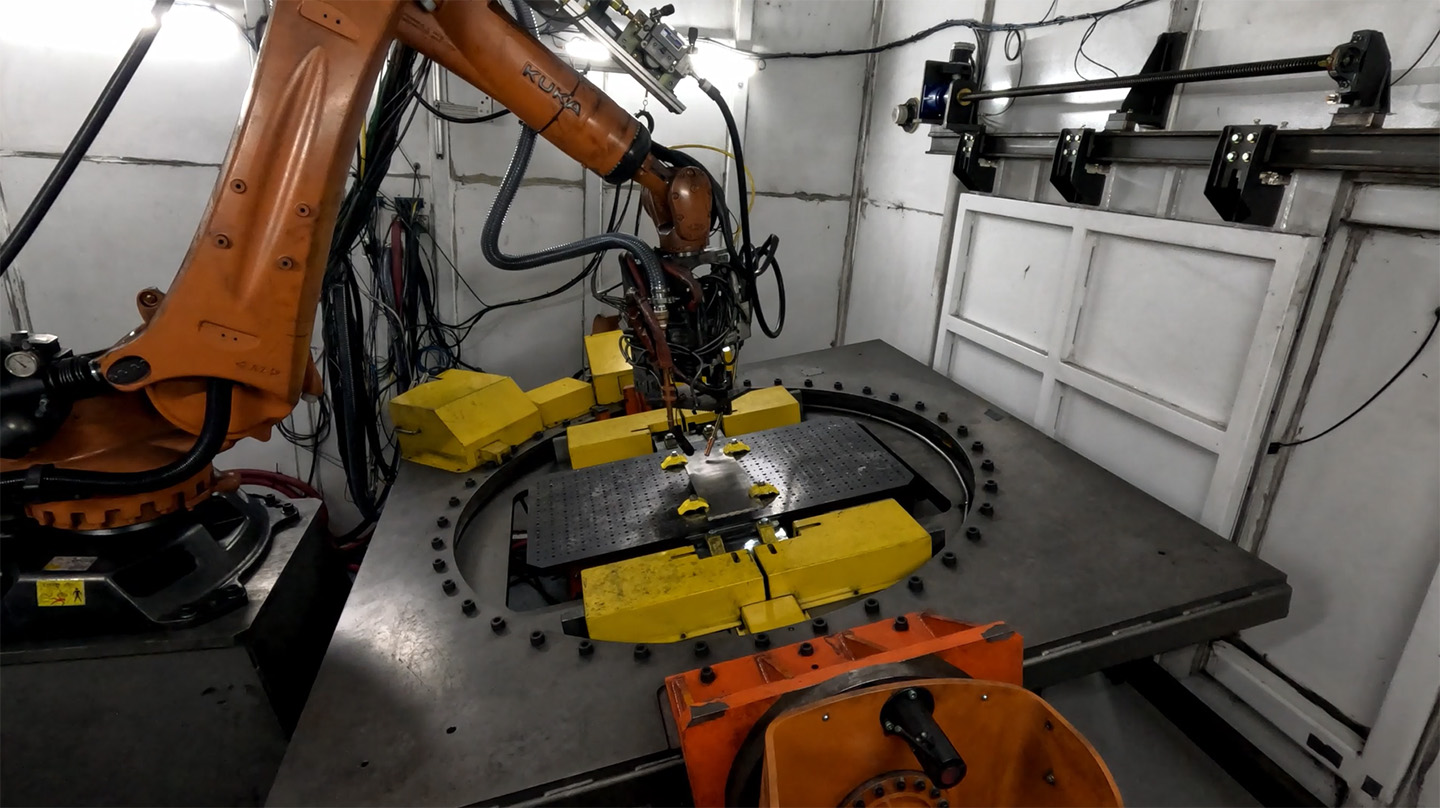
Simulating the Seas to Make Additive Manufacturing Fleet-Ready Mar 4, 2026
Johns Hopkins APL and GKN Aerospace are partnering to develop a system that simulates shipboard motion for metal 3D printing at sea — advancing the Navy’s ability to produce critical parts on demand. Building on APL’s success aboard the USS Bataan, this effort aims to enable motion-aware manufacturing of mission-essential components in dynamic maritime environments.

Researchers Engineer Cold-Tolerant Proteins to Give U.S. an Arctic Edge Mar 2, 2026
Researchers at Johns Hopkins APL, inspired by biomolecules found in cold-tolerant organisms, are developing novel materials that can control ice formation. Their breakthroughs could lead to new technologies for the U.S. military, from advanced materials for construction to medical treatments that can prevent frostbite and preserve sensitive biological samples.
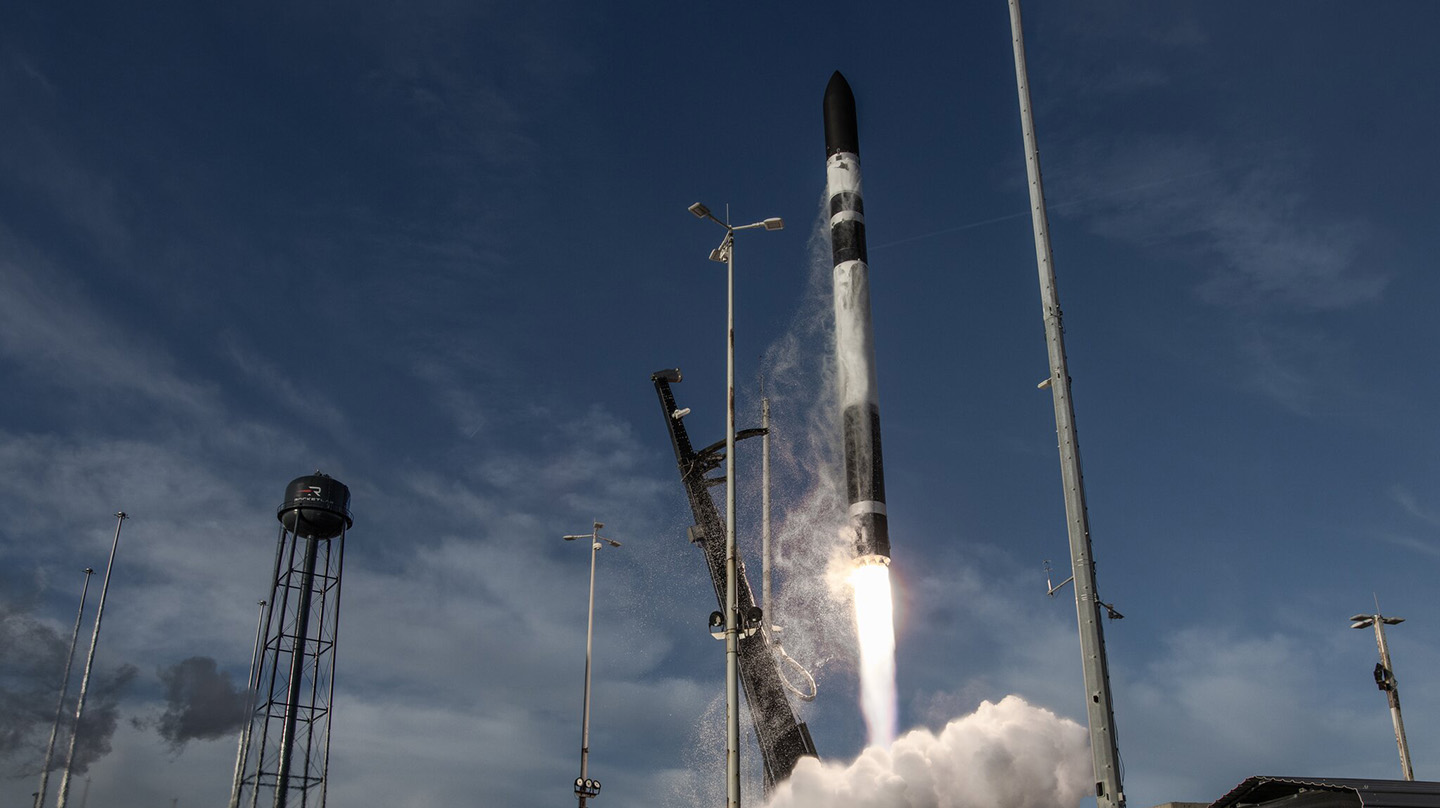
MDA, Johns Hopkins APL Demonstrate Low-Cost Approach to Missile Defense Testing Feb 24, 2026
The Missile Defense Agency (MDA) and APL have successfully demonstrated a new, lower-cost approach to national missile defense testing validating that commercially operated rockets can support rapid, affordable flight tests for missile defense programs.

Johns Hopkins APL’s Adams Honored for Innovative National Security Work Feb 18, 2026
Sarah Adams, program manager for Alternative Computing Paradigms, was honored by the Intelligence and National Security Alliance (INSA) for her contributions to advancing science and technology research in support of national security.
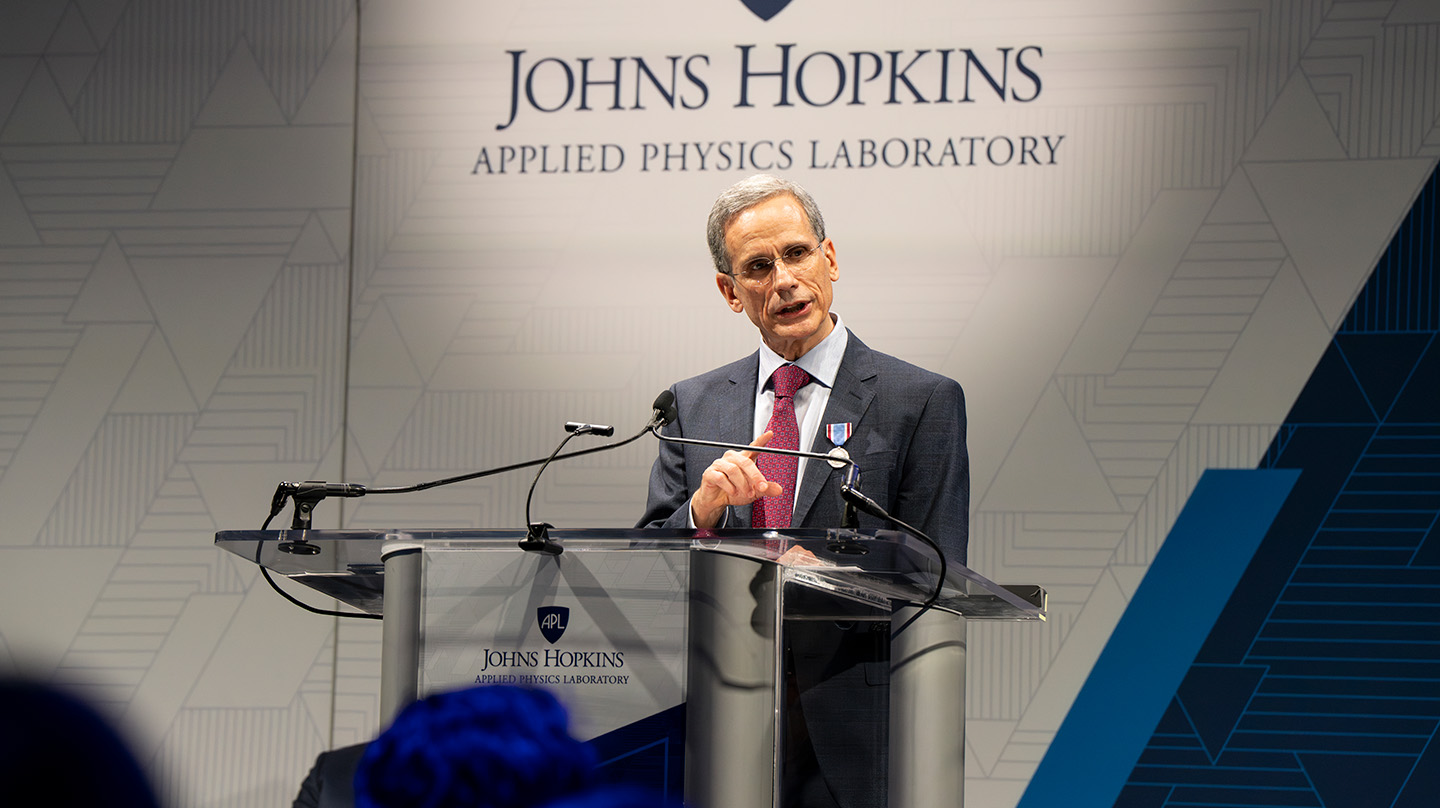
Johns Hopkins APL Director Emeritus Semmel Elected to the National Academy of Engineering Feb 12, 2026
APL Director Emeritus Ralph Semmel has been elected to the National Academy of Engineering for his leadership in generating innovative and disruptive engineering advancements in defense, national security, and space exploration.

Johns Hopkins APL Research Helps Shape Landmark Federal Expansion of Unmanned Aircraft Operations Feb 10, 2026
An APL research team help set new standards that could help drones more safely share America’s skies.

Johns Hopkins APL Experts Named to Department of War’s First Science, Technology and Innovation Board Feb 5, 2026
Mitch Nikolich and James Gosler, national security experts from APL, have been named to the Department of War’s first Science, Technology and Innovation Board.

Johns Hopkins Selects Caporaletti to Chair Engineering Management Graduate Program Feb 5, 2026
Stephanie Caporaletti, assistant branch supervisor in the Asymmetric Operations Sector at APL, has been appointed as chair of the Engineering Management program in the Johns Hopkins Whiting School of Engineering’s Engineering for Professionals program.

Geesaman Appointed Precision Strike Mission Area Executive at Johns Hopkins APL Jan 28, 2026
Brian Geesaman will lead a diverse portfolio of programs and initiatives focused on integrated strike warfare capabilities, kinetic and non-kinetic weapon systems, and end-to-end capability development.

Johns Hopkins APL-Supported Researchers Turn Biological Innovation Into a New Startup Jan 27, 2026
With support from APL, former staff members John Sittmann and Tom Curtis have launched Deep Root Biolabs, a startup advancing a patent-pending biological platform. By applying plant- and microbial-based systems, the company aims to tackle real-world challenges in agriculture, environmental remediation, and the bio-mining of critical minerals.
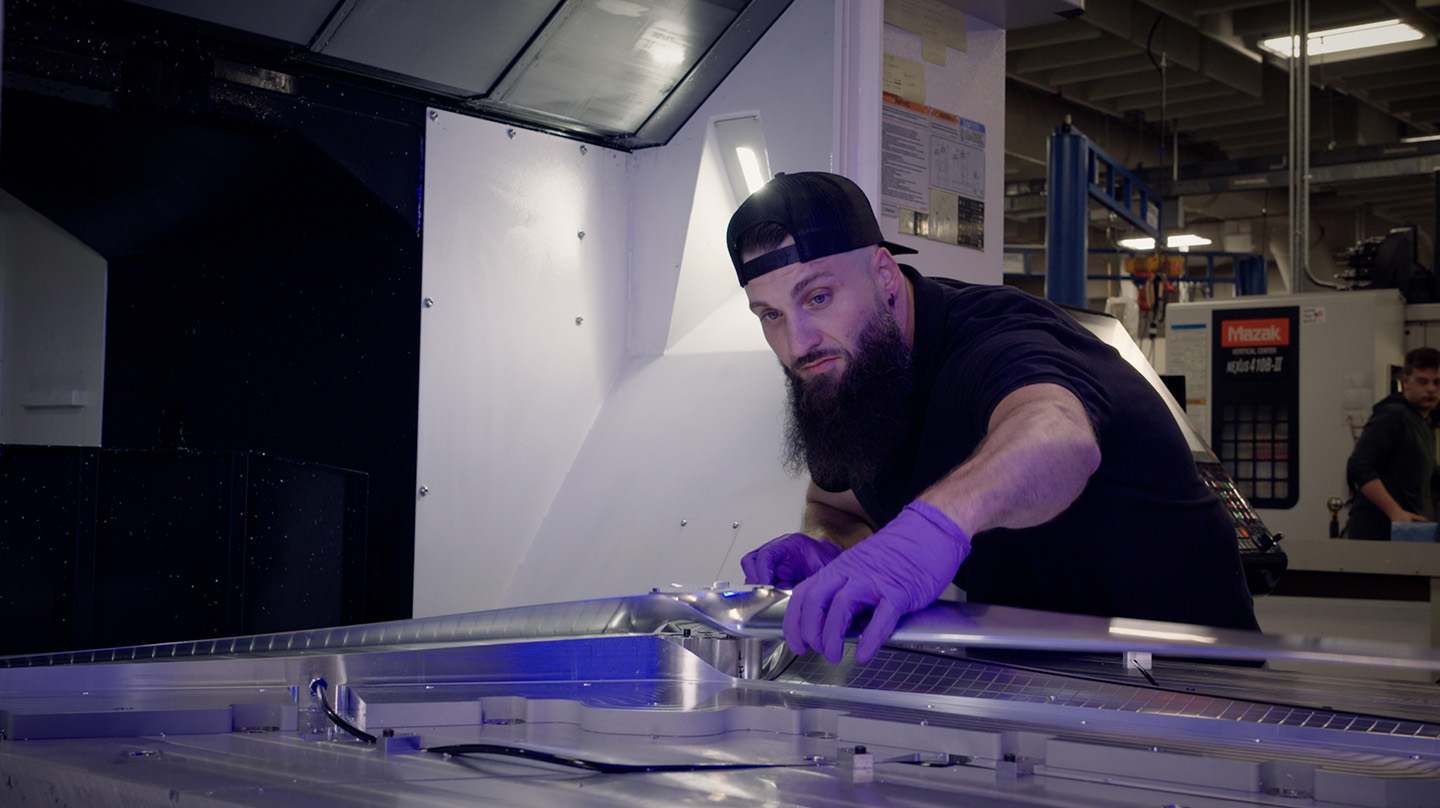
Flight Engineers Give NASA’s Dragonfly Lift Jan 23, 2026
When NASA’s Dragonfly begins full rotorcraft integration and testing in early 2026, the mission team will tap into a trove of data gathered through critical technical trials conducted over the past three years.
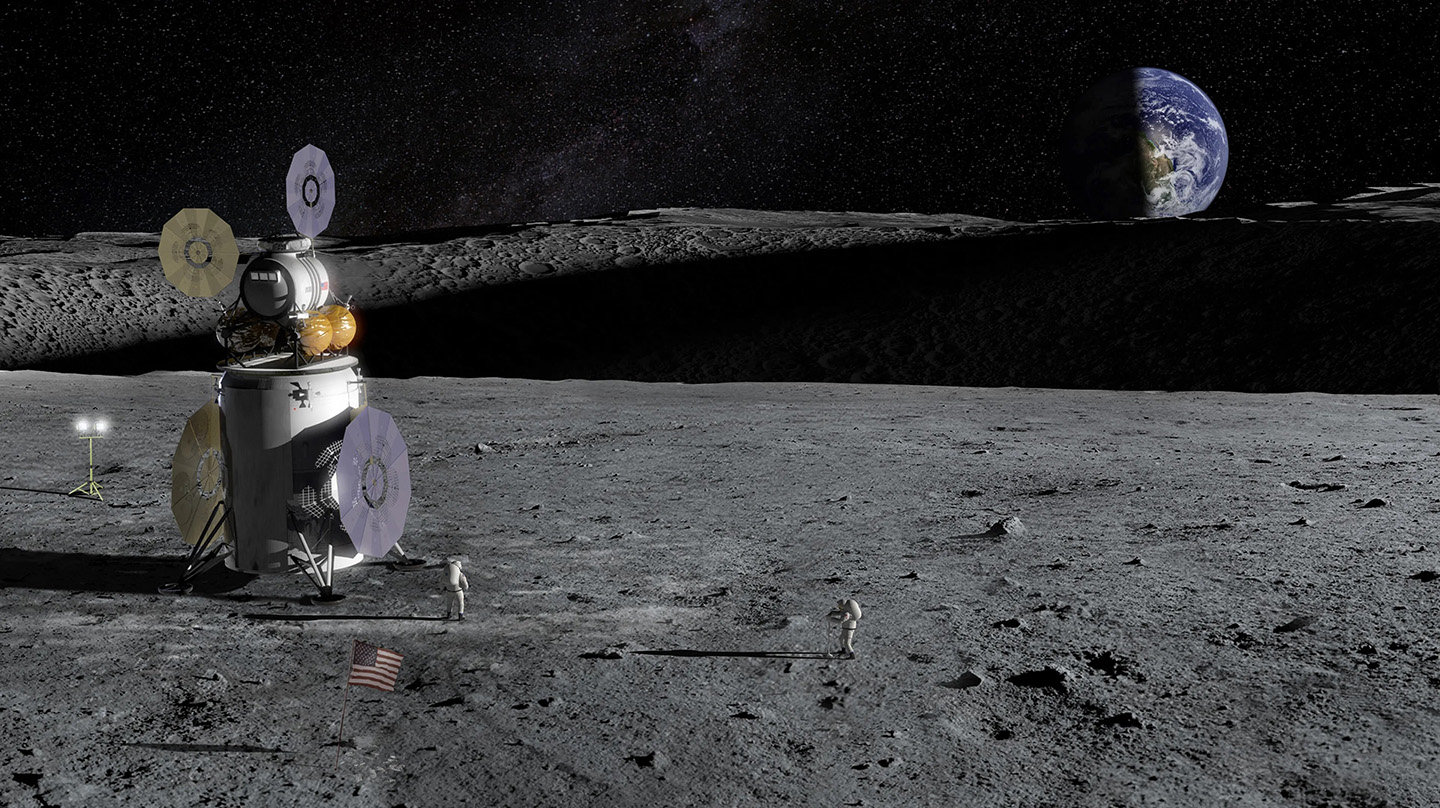
NASA Selects Johns Hopkins APL to Investigate Space Radiation Effects on the Lunar Surface Jan 21, 2026
APL has been awarded one of three new NASA science investigations designed to strengthen humanity’s understanding and exploration of the Moon. The research payloads will be integrated into the agency’s Commercial Lunar Payload Services initiative and Artemis campaign, with delivery to the lunar surface planned for 2028.

Johns Hopkins APL Expertise Supports New Navy Jammer Jan 20, 2026
The Next Generation Jammer features high-power amplifier technology and an extended range. APL provided technical insight and worked with government and industry partners to mature critical technologies for a more advanced jammer.

Moss Appointed to National Industrial Security Policy Committee Jan 16, 2026
Leonard Moss Jr. has been appointed to the National Industrial Security Program Policy Advisory Committee (NISPPAC), the nation’s primary forum for evaluating and recommending changes to the policies that guide the National Industrial Security Program.
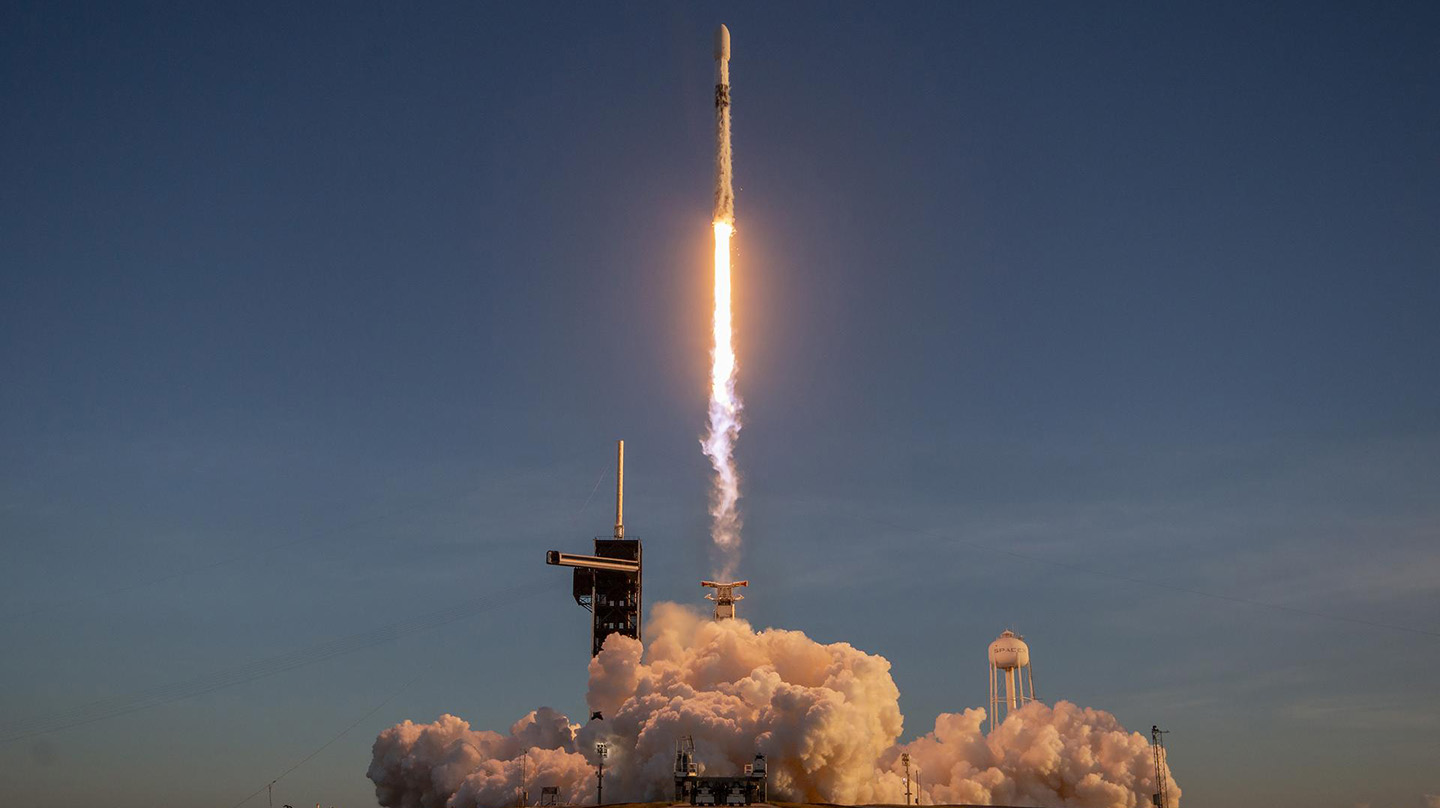
NASA’s IMAP Reaches Orbit to Start Study of Heliosphere and Space Weather Jan 12, 2026
NASA’s Interstellar Mapping and Acceleration Probe (IMAP) has reached its destination of the first Sun-Earth Lagrange point (L1), where it will start its prime mission of studying the heliosphere and space weather.

Global Partners to Highlight BOLT Hypersonic Experiment Success Jan 9, 2026
Learning from an anomaly during the first BOLT-1A flight, the successful BOLT-1B follow-on flight experiment collected hundreds of critical measurements, providing data to advance understanding of complex physics important to hypersonic flight.
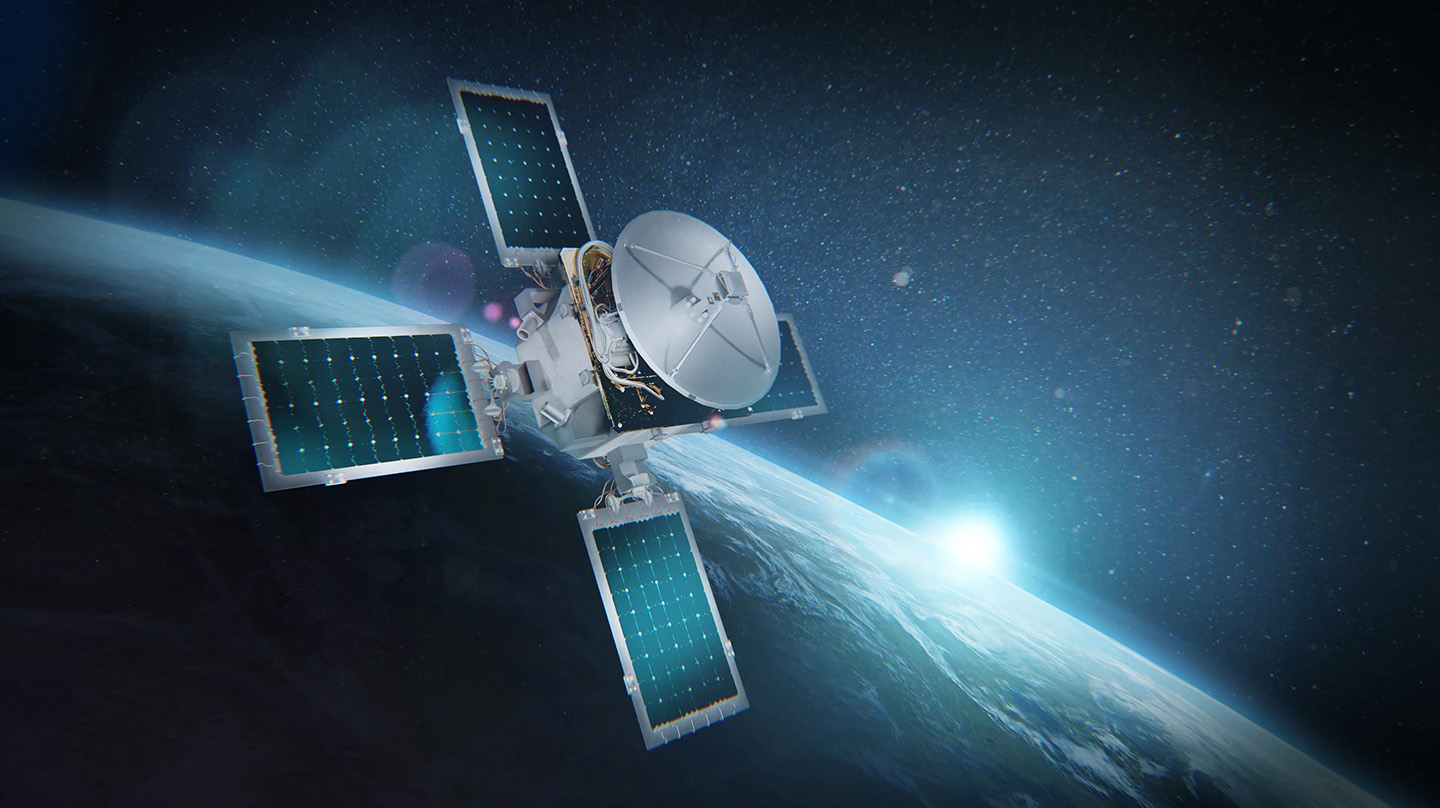
NASA and Johns Hopkins APL Demonstrate First-of-Its-Kind Space Communications Dec 19, 2025
NASA and APL have successfully tested a wideband technology that enabled, for the first time, a spacecraft to communicate with both government and commercial networks.

Chen Named National Security Analysis Department Head at Johns Hopkins APL Dec 16, 2025
APL has named Yu-Han “Hugh” Chen as head of the National Security Analysis Department (NSAD). Chen, who previously served as the department’s chief analyst, will lead APL’s work providing integrated technical and operational analysis to inform national security decisions.

Johns Hopkins APL-Led Team Releases Predictive Space Weather Model to Public Dec 12, 2025
A predictive space weather model developed by APL and partners that is designed to simulate how solar storms affect Earth is now widely available to researchers and the broader public.
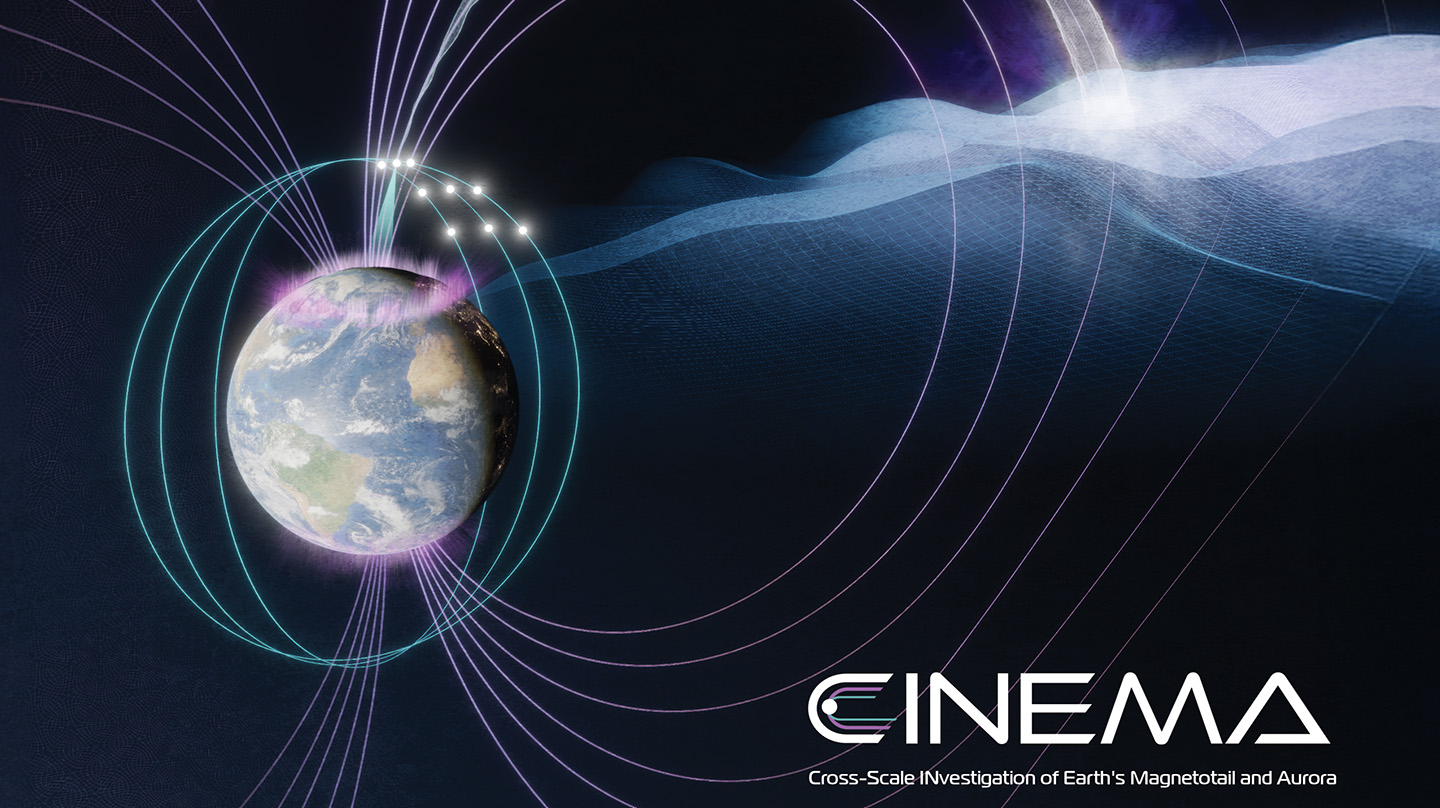
NASA Selects Johns Hopkins APL-Developed CINEMA Mission to Study Space Weather Dec 11, 2025
CINEMA, a mission to improve understanding of the growing impacts of space weather, has been competitively selected by NASA for development.
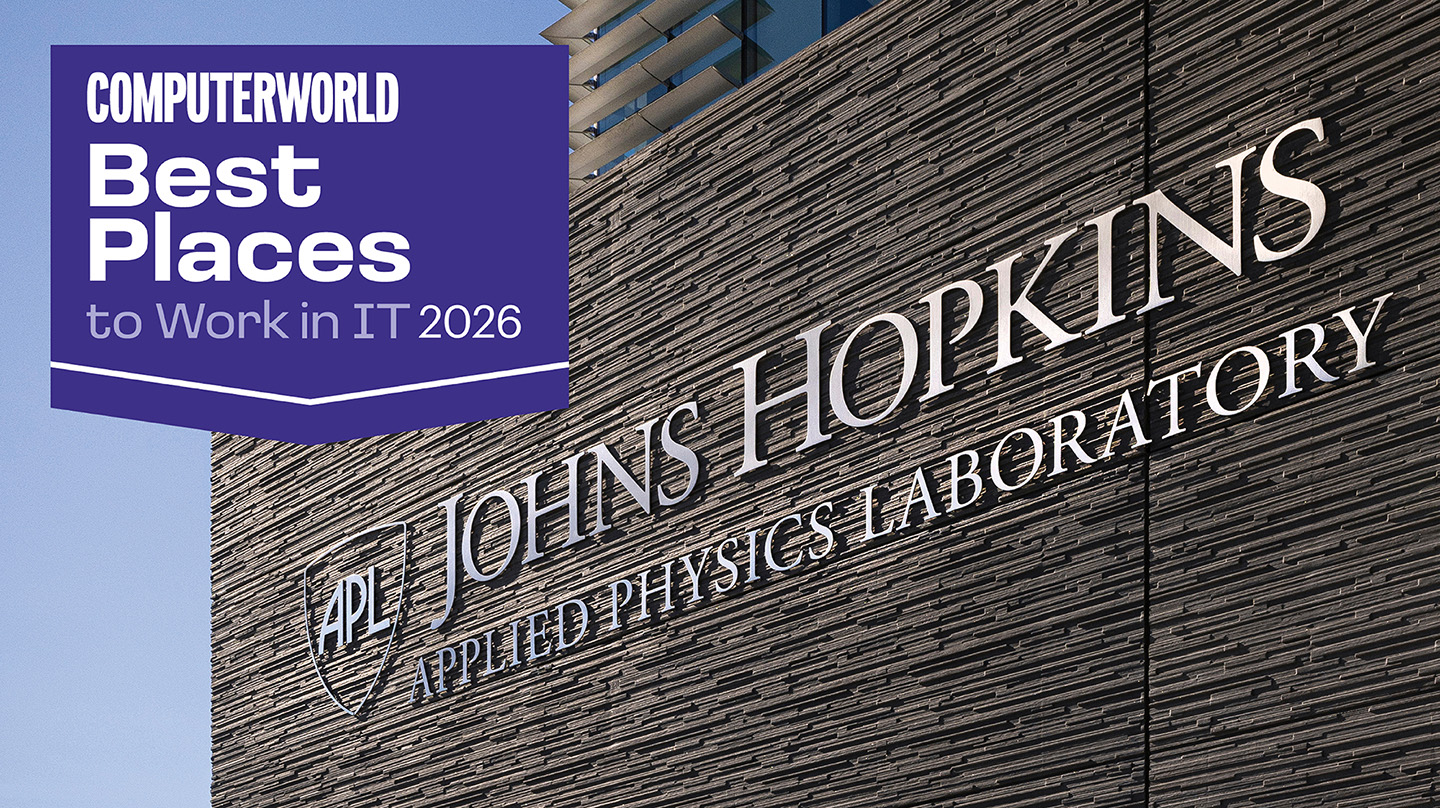
Computerworld Names Johns Hopkins APL to 2026 List of Best Places to Work in IT Dec 9, 2025
For the eighth consecutive year, APL appears on Computerworld’s Best Places to Work in IT list, which recognizes the top workplaces worldwide for information technology professionals.

Johns Hopkins APL and Intuitive Machines Advance the Nation’s Cislunar Communications and Navigation Dec 3, 2025
Since formalizing a partnership last fall, APL and Intuitive Machines have made marked progress toward building communications and navigation systems to enable a sustained U.S. presence on and around the Moon.

Johns Hopkins APL Names Watkins First Chief Mission Engineering and Integration Officer Dec 3, 2025
In the newly created role of APL chief mission engineering and integration officer, Christopher R. Watkins will lead efforts to strengthen cross-Laboratory collaboration, integrate multidisciplinary capabilities, and accelerate the development and transition of innovative technologies for national security.
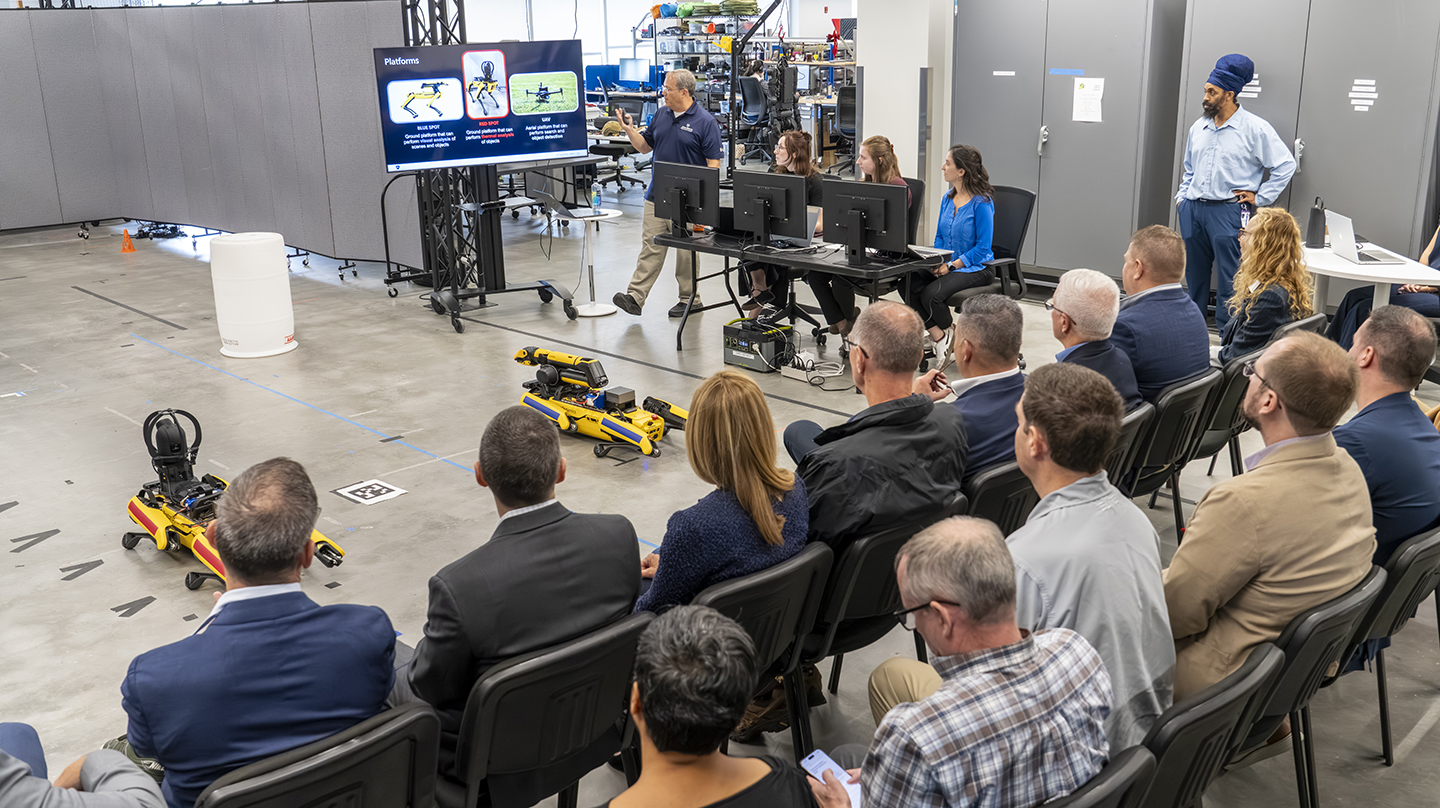
Johns Hopkins APL and Microsoft’s AI Agent Orchestrates Robotic Teams Dec 2, 2025
APL and Microsoft recently demonstrated an AI agent that can coordinate heterogeneous robot teams using large language models. The September demo highlighted how APL’s expertise in autonomy software and Microsoft’s scalable cloud tools are advancing the future of collaborative robotics. The effort reflects steady progress in a partnership focused on applying artificial intelligence to real-world challenges.

Stadter Named Mission Area Executive for Theater Defense at Johns Hopkins APL Nov 24, 2025
Patrick Stadter has been appointed mission area executive for Theater Defense within the Air and Missile Defense Sector at APL. In this role, Stadter will lead efforts to deliver innovative solutions that strengthen the nation’s air and missile defense capabilities. His extensive experience in aerospace systems and national security will be pivotal in guiding the Laboratory’s teams currently developing technologies that help protect U.S. and allied forces from increasingly complex regional threats in theaters across the globe.

Johns Hopkins Team Breaks Through Quantum Noise Nov 20, 2025
A team from Johns Hopkins APL and Johns Hopkins University has broken new ground in understanding quantum noise — a major source of error in quantum computing. Their findings, published in Physical Review Letters, address a critical challenge that must be solved to develop useful quantum computers.
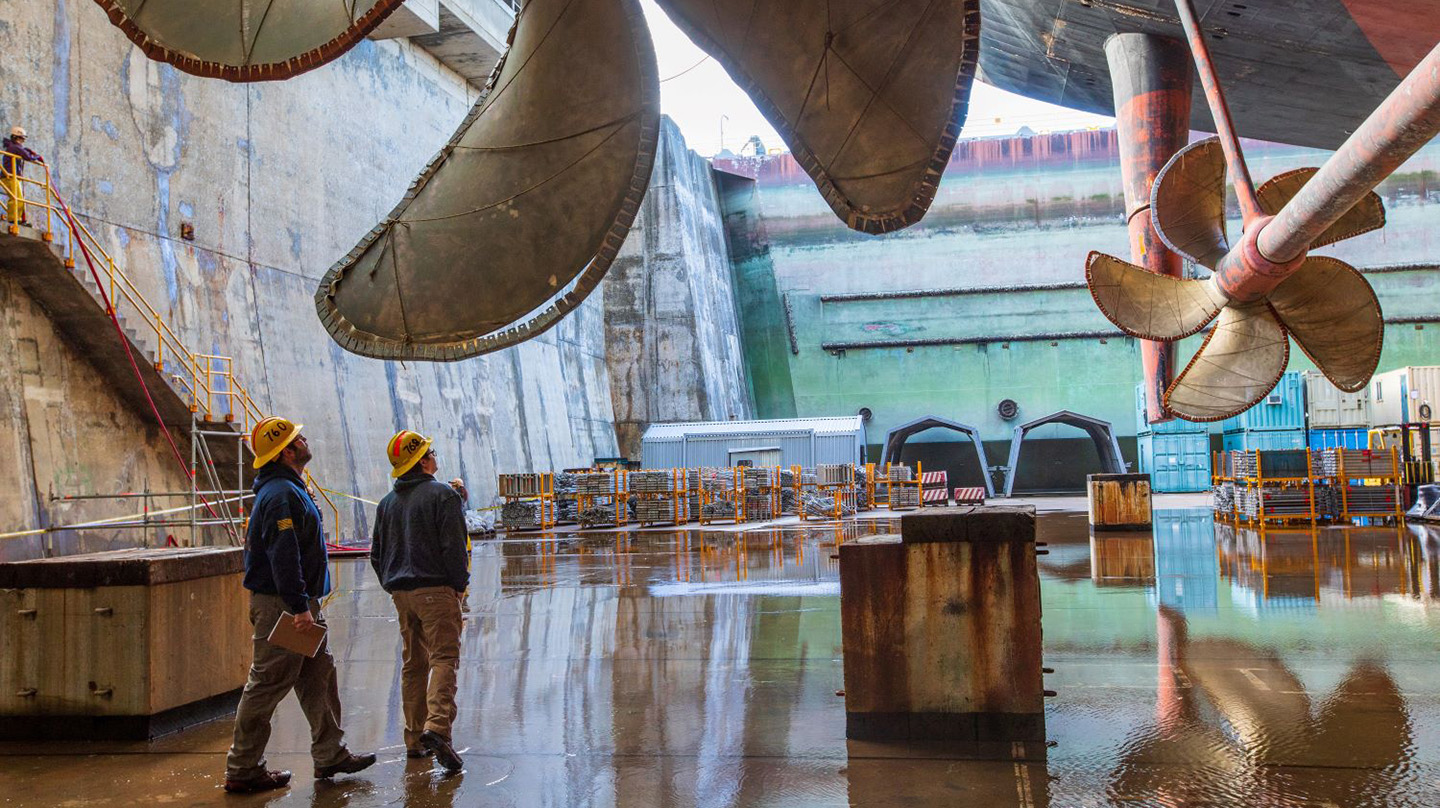
New Robotic Arm Opens Doors to Explore Future of Maritime Repair Nov 12, 2025
Johns Hopkins APL has installed a state-of-the-art robotic arm to advance repair and manufacturing for the maritime industrial base. Using wire arc additive manufacturing and advanced sensing technologies, the system makes faster, more precise repairs of oversized components possible—strengthening fleet readiness and reducing costs. This innovation builds on APL’s commitment to supporting Navy sustainment and industrial agility.

Johns Hopkins APL Establishes AI Wargaming Lab to Boost Strategic National Security Analysis and Planning Oct 30, 2025
APL is fusing its analytic and cutting-edge AI capabilities into a forward-leaning incubator, known as GenWar Lab, that leverages advanced AI and large language model capabilities to support the wargames and tabletop exercises that enable military decision-makers to explore dynamic and wide-ranging mission scenarios.

Standardizing Cyber Analytics to Secure Critical Infrastructure Oct 7, 2025
A Johns Hopkins APL team has developed a framework for standardizing alerts transmitted by cybersecurity systems defending critical infrastructure, dramatically improving the efficiency with which they respond to potential attacks.

NASA Launches IMAP Mission to Study the Heliosphere and Better Understand Space Weather Sep 24, 2025
NASA’s Interstellar Mapping and Acceleration Probe (IMAP) lifted off aboard a SpaceX Falcon 9 rocket from the agency’s Kennedy Space Center in Florida at 7:30 a.m. EDT.
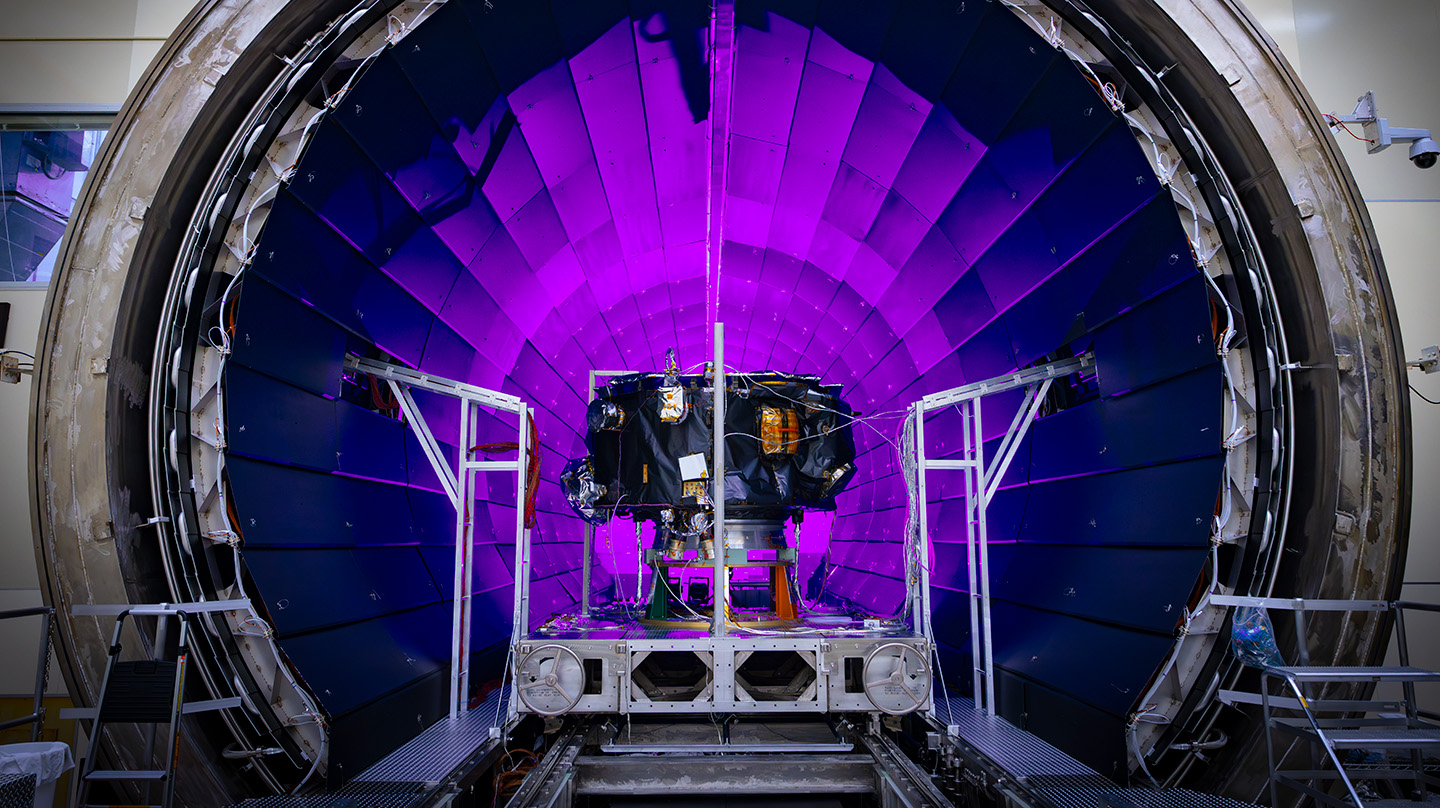
NASA’s IMAP Mission Passes Major Prelaunch Milestone Sep 19, 2025
NASA’s Interstellar Mapping and Acceleration Probe (IMAP) completed its Flight Readiness Review on Sept. 18, which certifies its readiness to initiate final launch preparation activities.
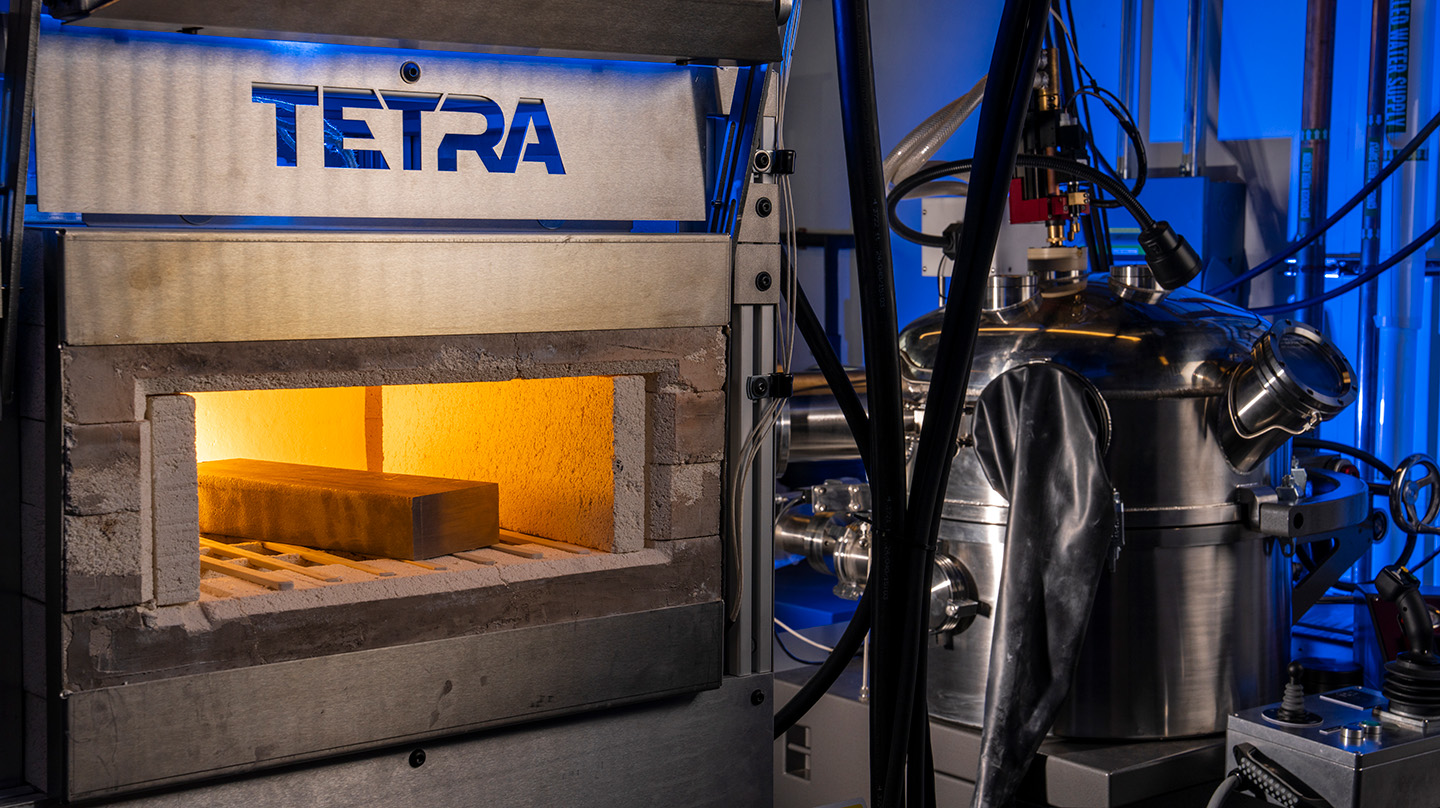
An Accelerated Paradigm for Developing Mission-Critical Materials Sep 17, 2025
Scientists and engineers at Johns Hopkins APL are applying artificial intelligence and robotics to dramatically accelerate the process of designing, testing and optimizing metallic components for the defense industrial base.

Johns Hopkins APL Named a Best Workplace for Innovators for Seventh Straight Year Sep 9, 2025
For the seventh consecutive year, APL has been named one of Fast Company’s Best Workplaces for Innovators, recognizing the Lab’s sustained commitment to empowering bold ideas and transformative research.
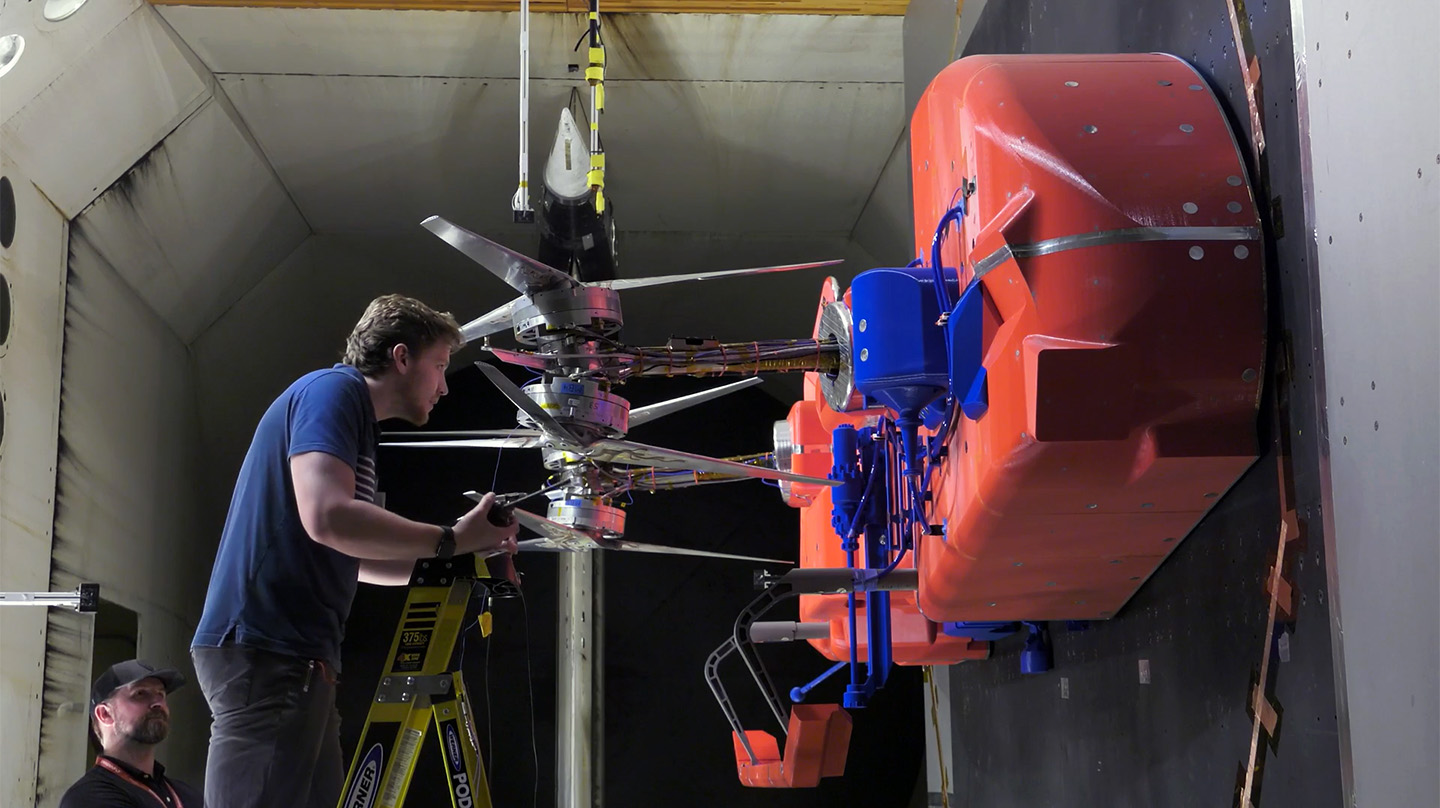
NASA’s Dragonfly Soaring Through Key Development, Test Activities Sep 8, 2025
NASA’s Dragonfly mission has cleared several key design, development and testing milestones and remains on track toward launch in July 2028.

Mara Named Head of Force Projection Sector at Johns Hopkins APL Sep 8, 2025
Andrew Mara has been named head of the Force Projection Sector at APL. Mara joined APL in 2023 as the head of the National Security Analysis Department, where he led the development of advanced technical capabilities to enable high-impact analyses of strategic challenges.

Thompson Named Mission Area Executive for National Security Analysis at Johns Hopkins APL Sep 4, 2025
Angela Thompson has been appointed National Security Analysis mission area executive at APL. Since joining the Lab in 2007, she has served in key leadership roles guiding programs that advance U.S. national security.

Provisions From Pond Water? Researchers Leverage Biomanufacturing to Produce Food Sep 3, 2025
Johns Hopkins APL researchers are exploring ways to produce food on demand by using readily available water to grow edible microbial products — an effort that could have significant implications for deployed military.
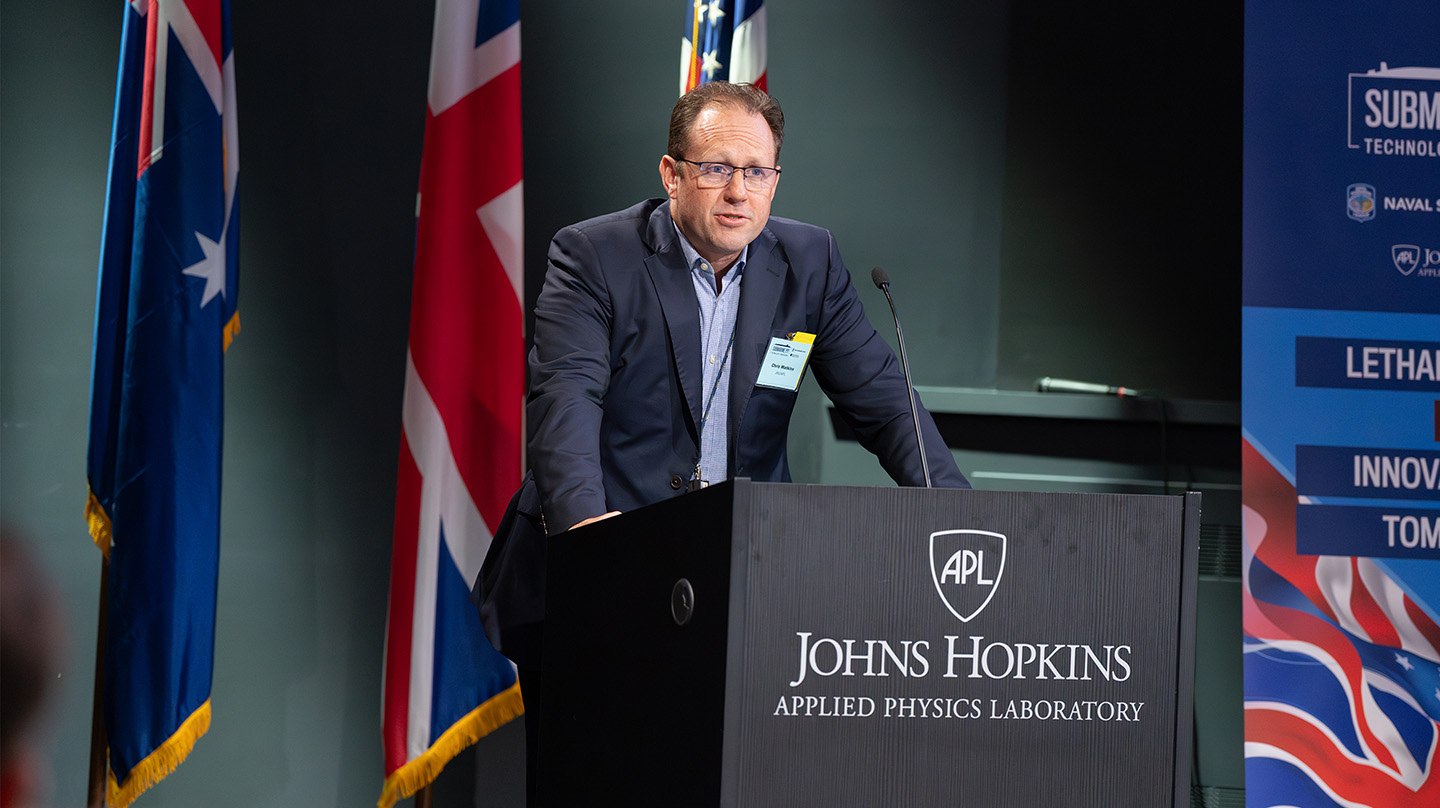
37th Annual Submarine Technology Symposium Advances Undersea Collaboration and Innovation Sep 2, 2025
More than 600 participants from across the submarine force, allied nations, industry and academia gathered at Johns Hopkins APL for the 37th Submarine Technology Symposium. The symposium provided a forum for technical exchange and discussion under the theme “Lethality Today and Innovation for Tomorrow.”
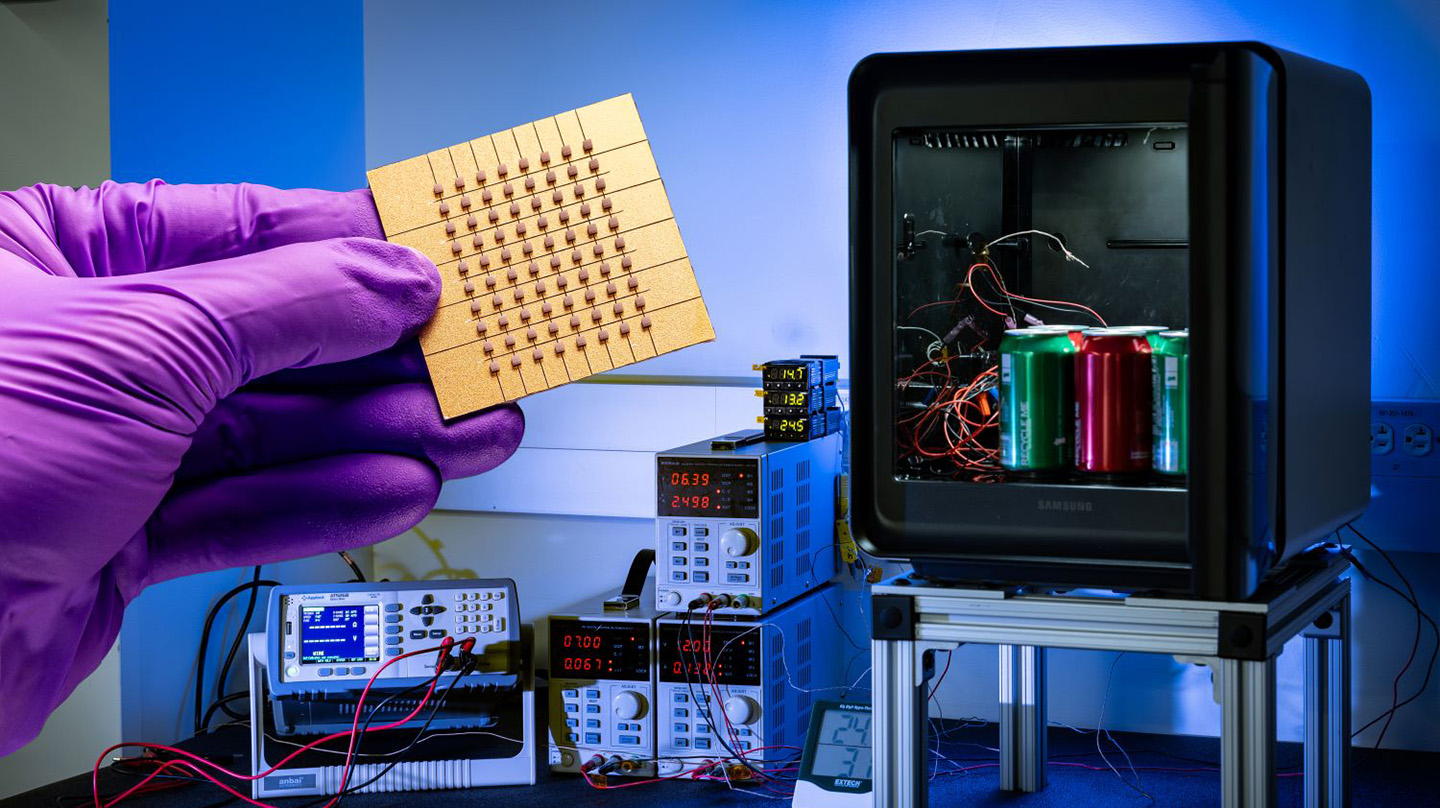
Johns Hopkins APL’s Next-Generation Solid-State Refrigeration Technology Wins 2025 R&D 100 Award Aug 21, 2025
APL researchers won a 2025 R&D 100 award for their nano-engineered materials called CHESS that significantly improve the efficiency of thermoelectric cooling devices. Their breakthrough nearly doubles the performance of traditional materials at room temperature, opening the way to much better cooling systems and energy-saving technologies.

Johns Hopkins APL Technology Fuels Startup Launched to Deliver Safer, More Effective Pain Management Aug 14, 2025
A new startup, BIOPAC Medical Systems LP, has been launched to advance a novel neural blockade monitoring technology toward clinical use. The venture is a collaboration between APL, the Johns Hopkins School of Medicine, BLOCKsynop, Inc., and BIOPAC Systems, Inc., and will pursue regulatory approval and commercial deployment of a device that provides real-time, objective evaluation of regional anesthetic effectiveness.

Johns Hopkins APL Names Terlaje Chief Government Relations Officer Aug 7, 2025
Melissa Terlaje has been appointed chief government relations officer at APL. In this role, she will lead the Laboratory’s strategic engagements with government sponsors and stakeholders, ensuring APL’s critical contributions remain aligned with and continue to advance national priorities. Additionally, she will serve as board secretary for the Laboratory’s Board of Managers, which provides oversight of APL.

Johns Hopkins APL Takes a Quantum Approach to Tracking Online Trends Aug 7, 2025
APL researchers have demonstrated that a quantum algorithm can be used to speed up an information analysis task that classical computers struggle to perform.
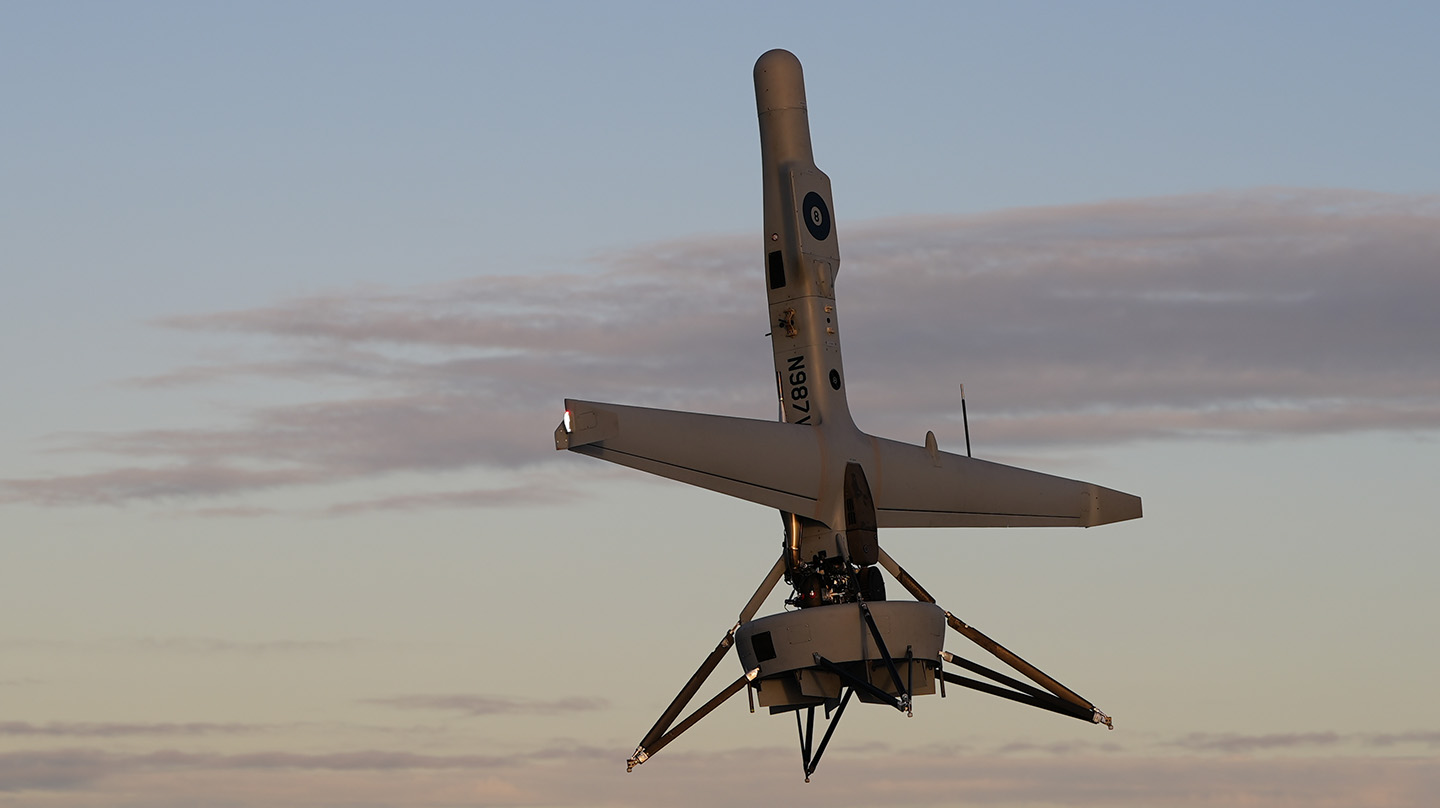
Design Standard Update Improves Modular Architecture for Unmanned Platforms Aug 5, 2025
Revision 6.1 of the Modular Payload Design Standard, developed by a collaborative team of government and industry partners led by Johns Hopkins APL, marks a significant evolution in the way electronic warfare, signals intelligence and communications payloads are conceived, integrated and sustained across unmanned and dismounted platforms.
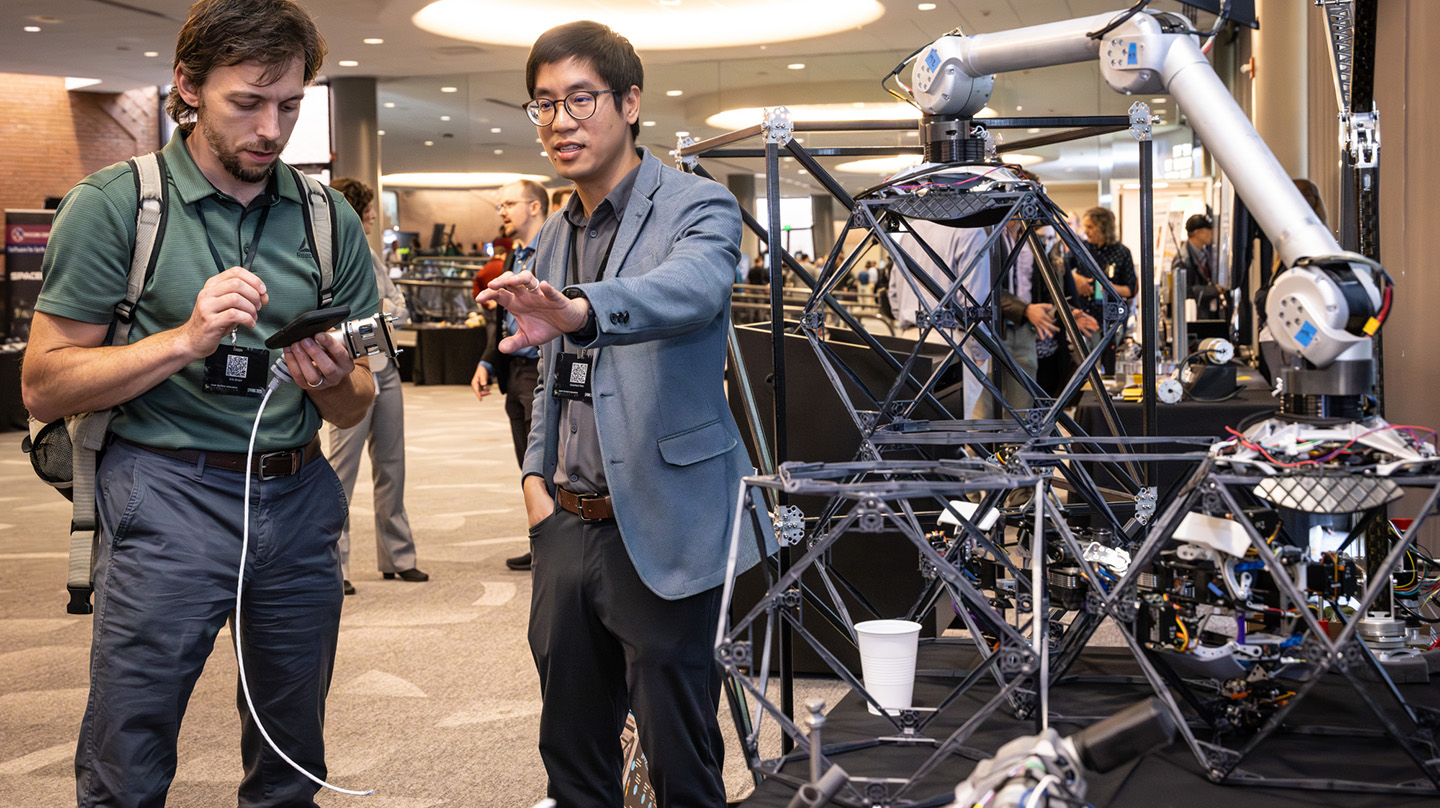
Lunar Innovation Consortium Powering a Path Back to the Moon Jul 28, 2025
Starting as a one-day meeting on the Johns Hopkins APL campus in 2020, the Lunar Surface Innovation Consortium has since become a catalyst for technical collaboration and a driving force in the nation’s return to the Moon.
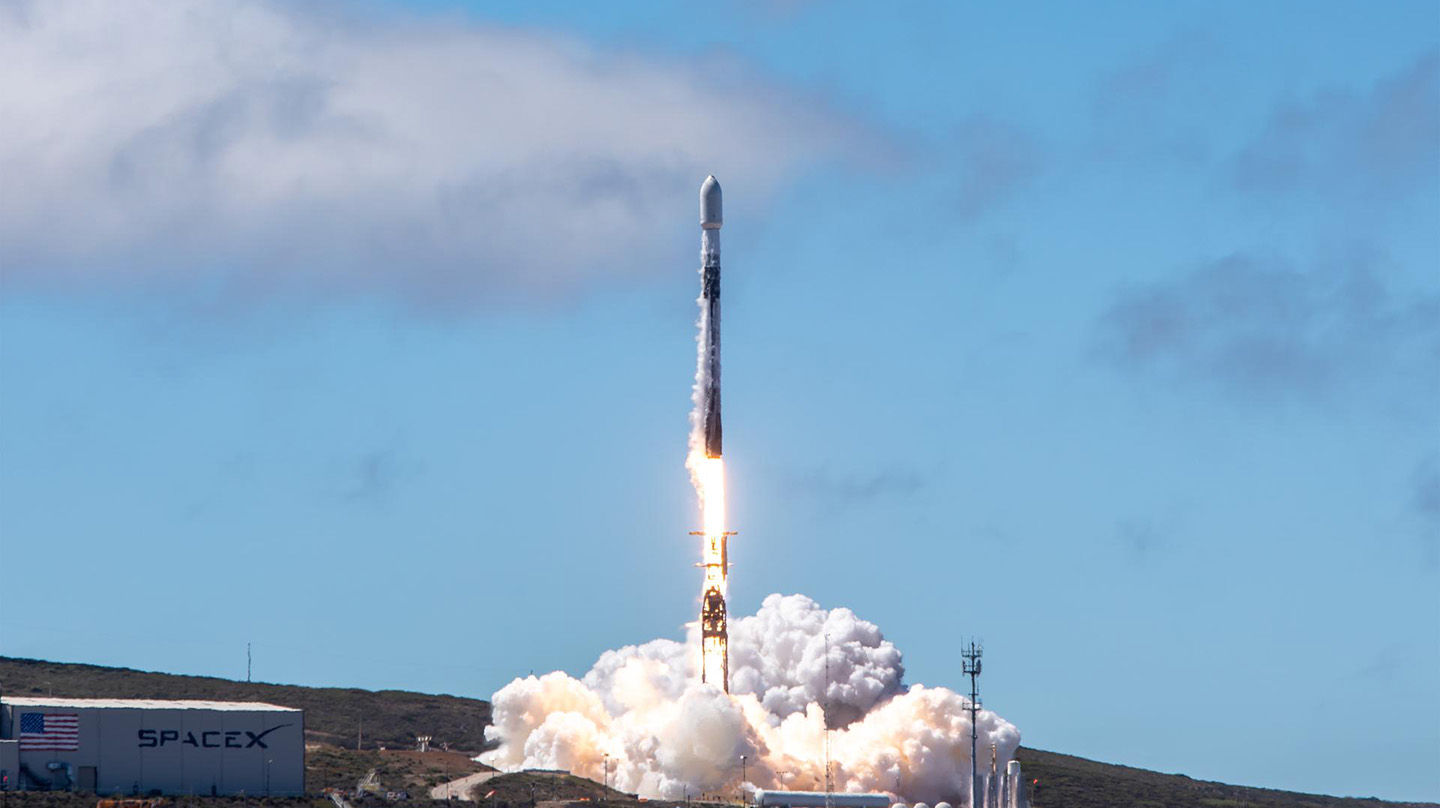
Science in REAL Time: CubeSat Set to Explore Earth’s Radiation Belts Jul 24, 2025
NASA’s Relativistic Electron Atmospheric Loss (REAL) spacecraft, developed and managed by Johns Hopkins APL, launched successfully from Vandenberg Space Force Base in California on July 23. The CubeSat mission will investigate the mysterious forces that can cause energetic particles to fall from Earth’s radiation belts, posing a threat to orbiting infrastructure.

NASA, Johns Hopkins APL Poised to Demonstrate Next-Gen Spacecraft Comms Technology Jul 22, 2025
As NASA prepares to commercialize satellite relay services, APL engineers are developing an effective and efficient way for spacecraft to relay data and communicate in low Earth orbit.
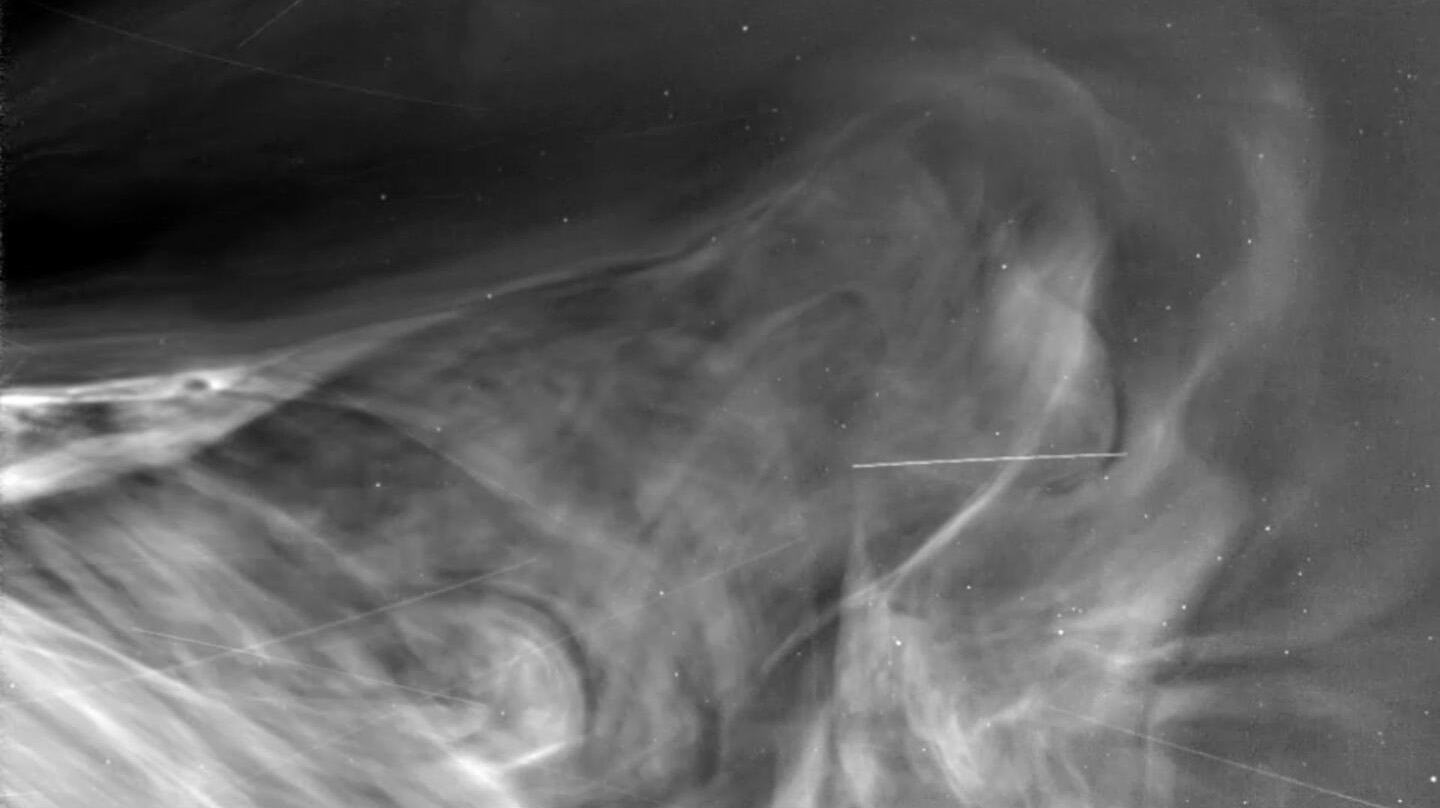
NASA’s Parker Solar Probe Snaps Closest-Ever Images to Sun Jul 16, 2025
On its record-breaking pass by the Sun late last year, the Johns Hopkins APL-built Parker Solar Probe captured stunning images from within the Sun’s atmosphere. Taken closer to the Sun than we’ve ever been before, the images are helping scientists better understand the Sun’s influence across the solar system, including events that can affect Earth.

Giare Named Head of Johns Hopkins APL’s Air and Missile Defense Sector Jul 15, 2025
Vishal Giare has been appointed head of APL’s Air and Missile Defense Sector, where he will lead APL’s efforts to advance the nation’s ability to defend our homeland, deployed forces, allies and partners against increasingly complex adversary threats.
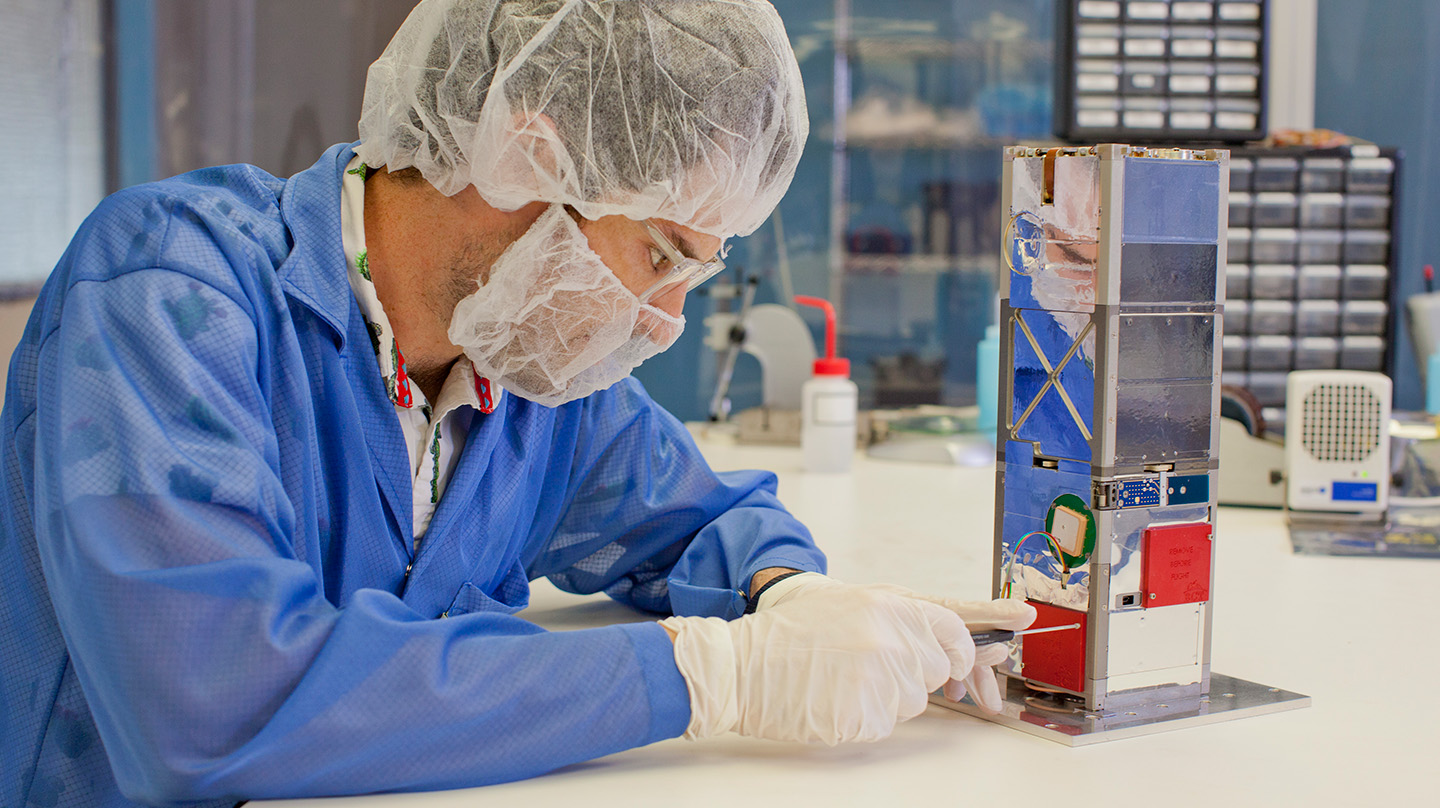
Commercial Collaborations Enable Agile, Reliable Space Solutions Jul 8, 2025
For nearly a decade, Johns Hopkins APL and Blue Canyon Technologies have collaborated on agile, reliable space solutions for government sponsors, enabling faster and more cost-effective space missions across civil space and national security sectors.
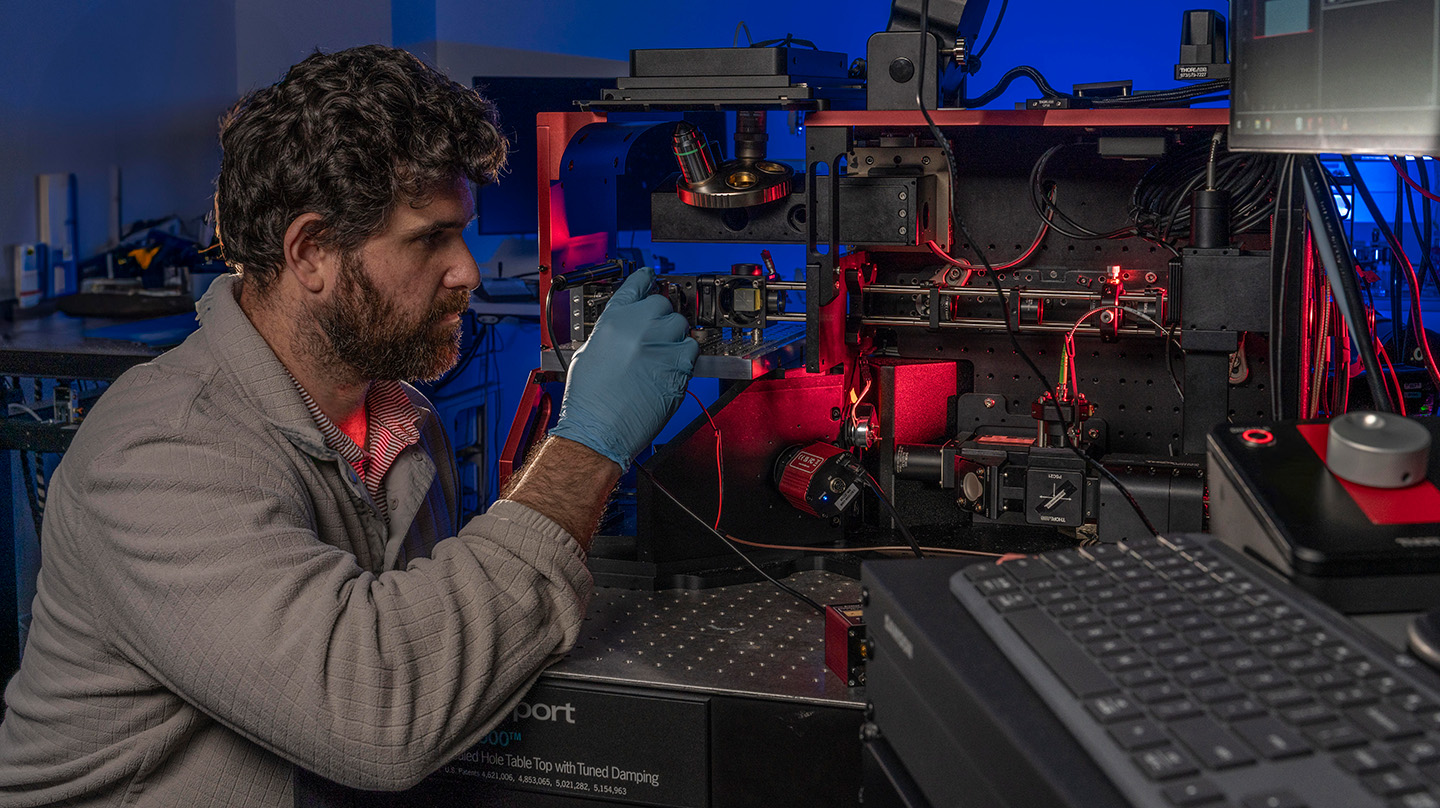
Johns Hopkins APL Develops Innovative Platform for Traumatic Brain Injury Research Jul 3, 2025
A team of researchers from APL and the Johns Hopkins Bloomberg School of Public Health is developing next-generation brain organoid platforms to better understand the effects of mild blast-induced traumatic brain injuries caused by repeated low-level blasts.

USNORTHCOM Commander’s Visit Spotlights Johns Hopkins APL’s Proactive Role in Homeland Defense Jun 18, 2025
Gen. Gregory Guillot, Commander, North American Aerospace Defense Command and U.S. Northern Command, saw firsthand how APL’s advanced technologies and cross-agency expertise support emerging national security priorities, including integrated air and missile defense, multidomain awareness and counter-drone operations.
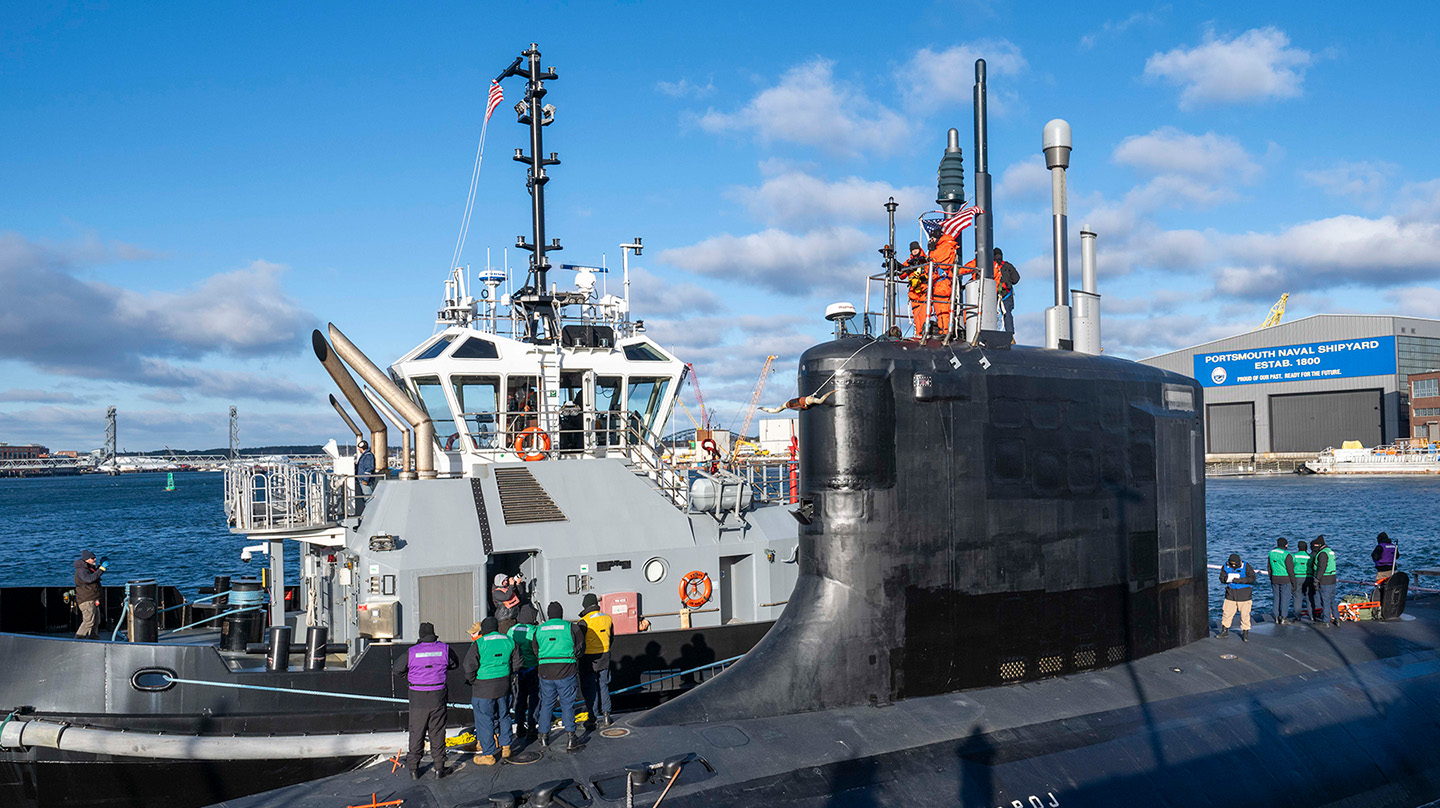
Johns Hopkins APL, Navy Team up to Advance Additive Manufacturing for Critical Missions Jun 17, 2025
APL is working with the Naval Sea Systems Command to prove that additive manufacturing can consistently deliver mission-critical components, reducing logistics delays and enhancing fleet readiness.

Engineering Tomorrow’s Quantum Computers May 27, 2025
Researchers have touted the revolutionary potential of quantum computers to take on otherwise intractable challenges, like modeling complex molecular behavior for drug discovery or factoring enormous numbers in use for cryptography schemes. But how such a computer would be created remains unclear. With help from Johns Hopkins APL, the Defense Advanced Research Projects Agency is attempting to define, in practical terms, what a useful quantum computer looks like and how it must be built.
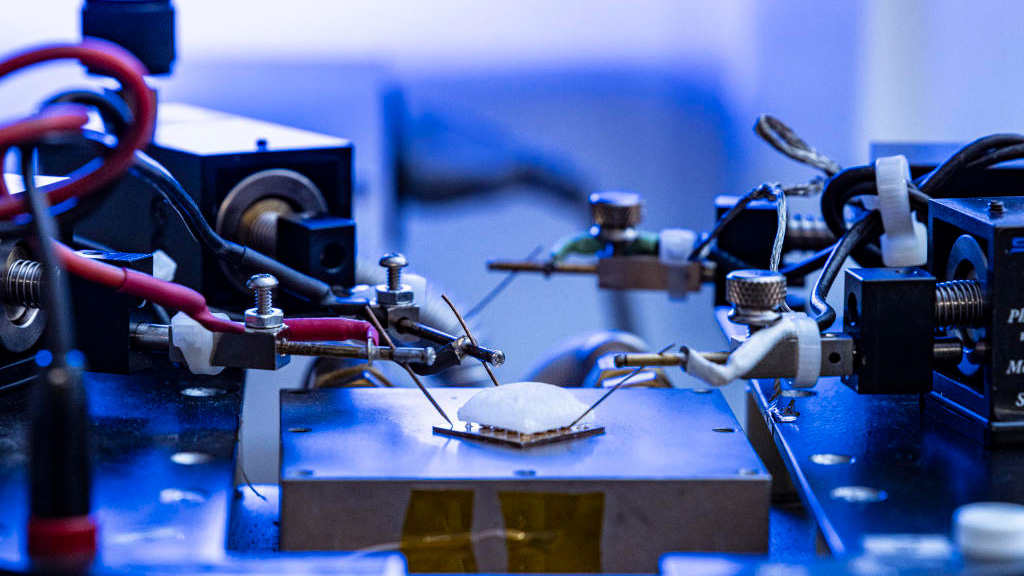
Nano-engineered Thermoelectrics Enable Scalable, Compressor-Free Cooling May 21, 2025
Researchers at Johns Hopkins APL, in collaboration with Samsung Research, have unveiled a breakthrough in solid-state cooling technology, doubling the efficiency of today’s commercial systems. Driven by the Lab’s patented nano-engineered thin-film thermoelectric materials and devices, this innovation paves the way for compact, reliable and scalable cooling solutions that could potentially replace traditional compressors across a range of industries.

Johns Hopkins APL Publishes Report on Nation’s First Space Weather Simulation Exercise May 2, 2025
APL recently released the report on the nation’s first space weather tabletop exercise held last year, which simulated a severe space weather event. The report identifies key findings and recommendations for improving the nation’s response to space weather events.
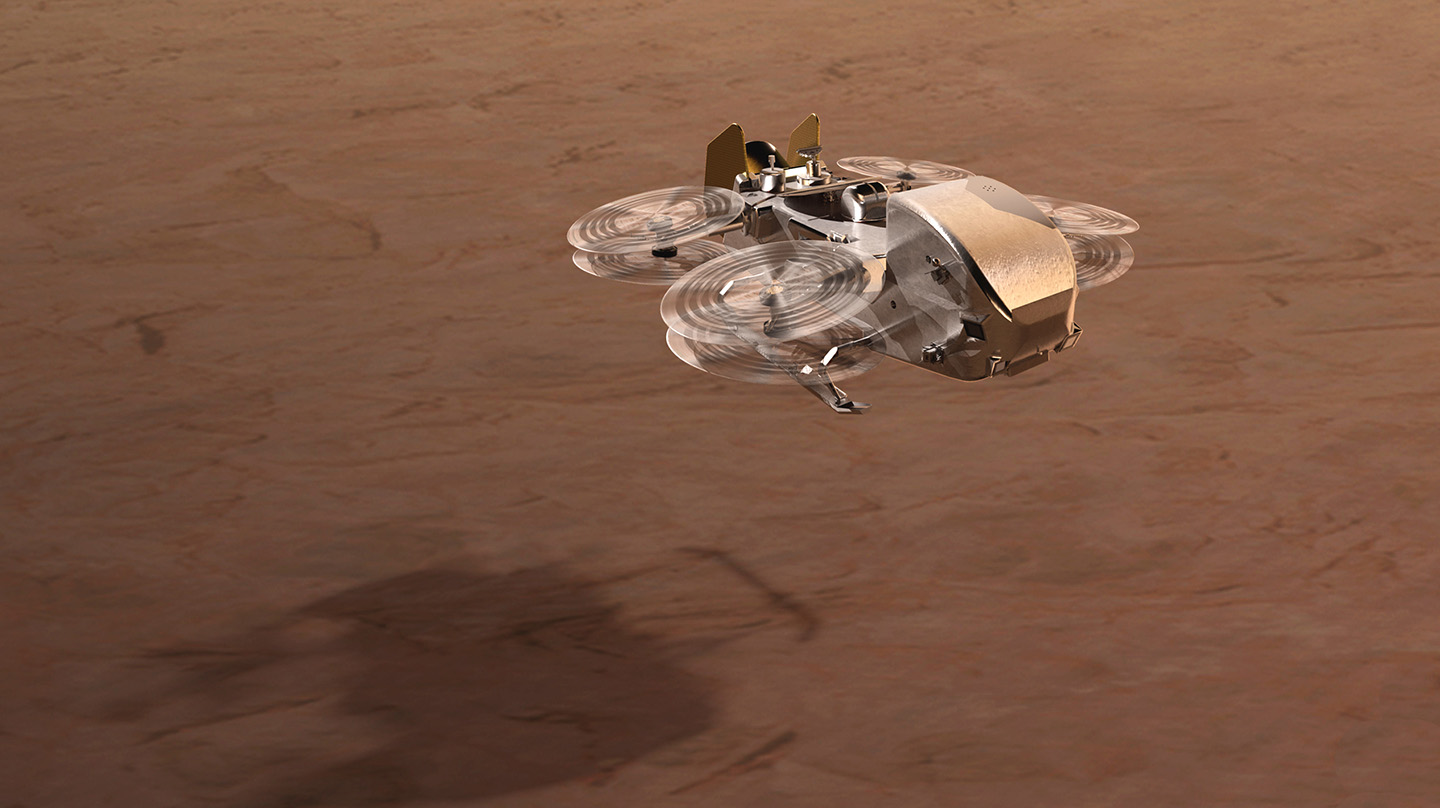
Dragonfly Mission Passes Critical Design Review Apr 25, 2025
The Johns Hopkins APL-led team working on the first rotorcraft designed for scientific exploration on another ocean world has passed its Critical Design Review, a major milestone confirming that Dragonfly’s design is mature and the team can turn its attention to construction and testing of the spacecraft itself.

Dave Van Wie Named Next Director of the Johns Hopkins Applied Physics Laboratory Apr 11, 2025
Dave Van Wie has been selected to lead Johns Hopkins APL as its next director. Van Wie, currently the Air and Missile Defense Sector Head at APL, is a distinguished leader and scholar whose groundbreaking contributions to national defense and aerospace engineering have significantly advanced our nation’s security. His appointment is effective July 14.
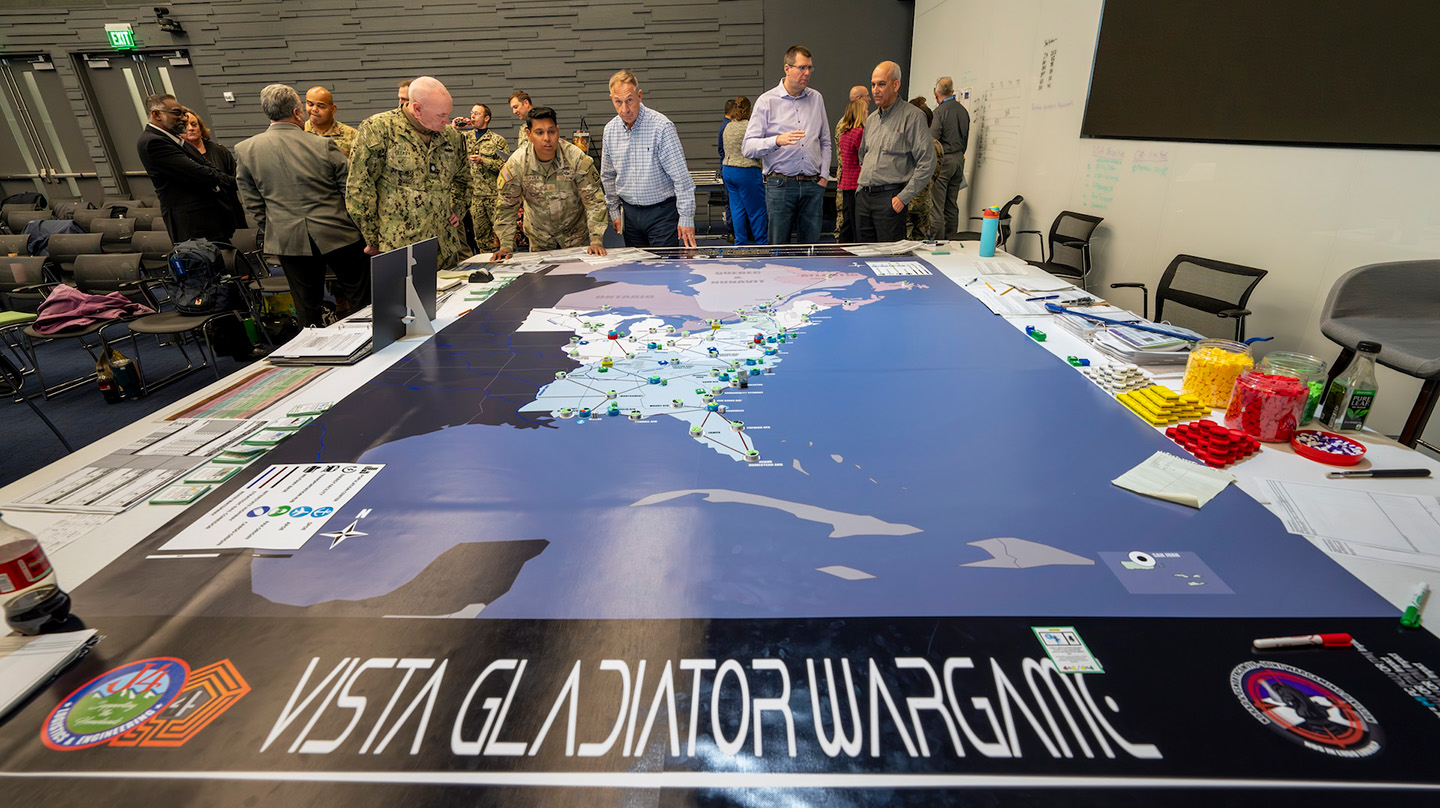
Johns Hopkins APL Team Applies Expertise to Homeland Defense Wargame Apr 7, 2025
A team from APL played a central role in a recent Defense Department wargame that addressed the challenges of protecting logistics infrastructure against growing adversarial threats.
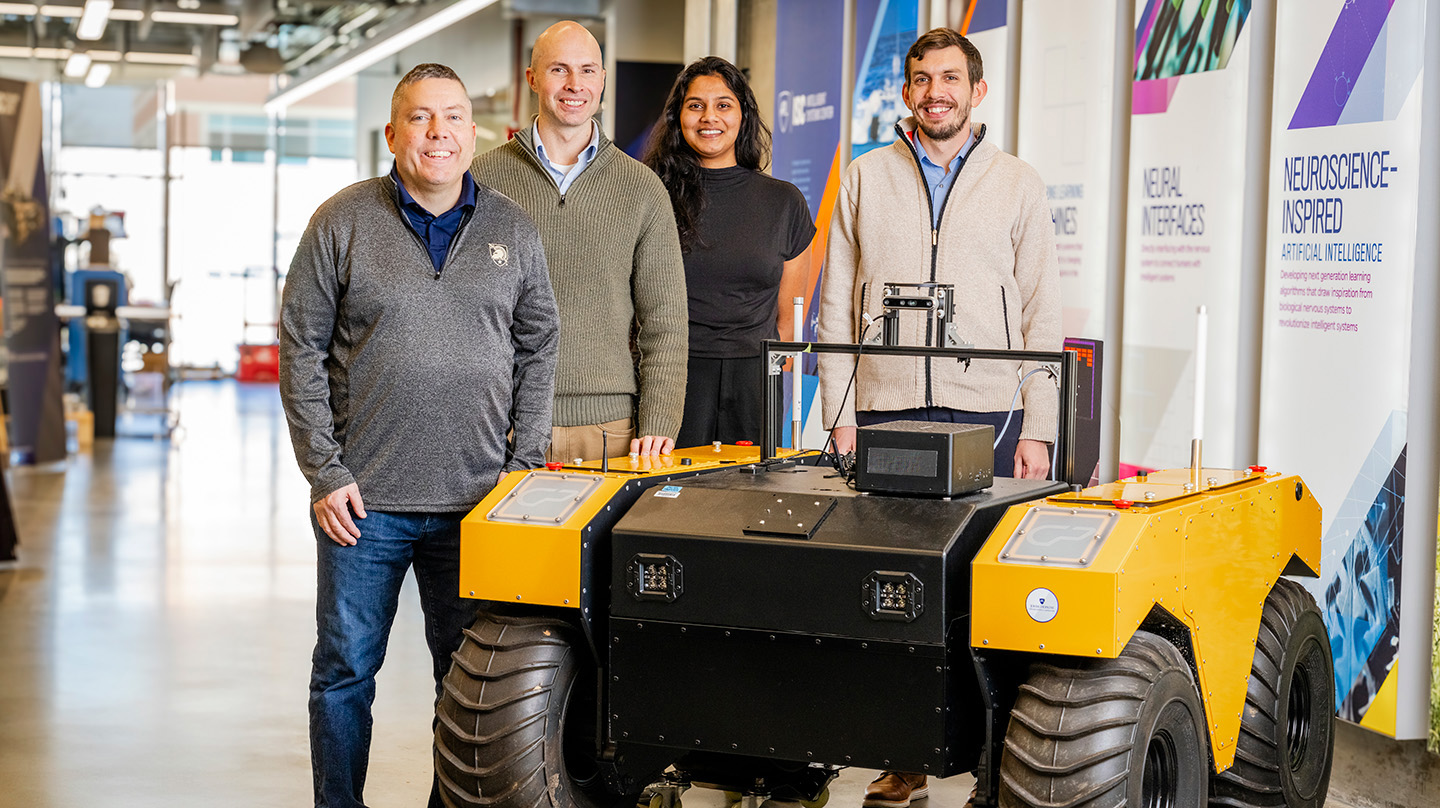
Training Robots to Plan and React Like Humans Apr 3, 2025
Johns Hopkins APL researchers are advancing robotic perception by using artificial intelligence to equip autonomous agents with the capacity to make sense of unstructured environments — and make plans just like humans.
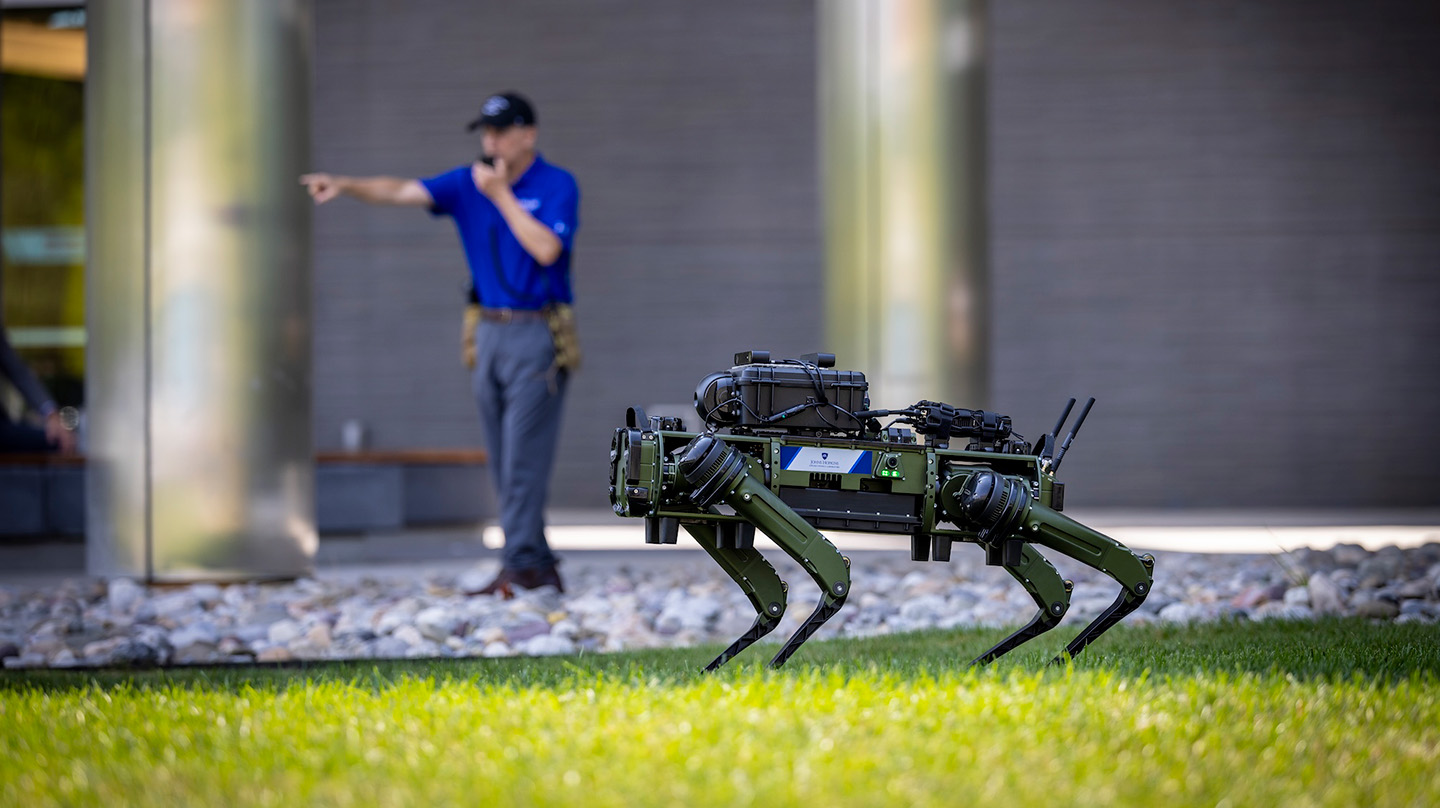
Johns Hopkins APL, Microsoft Collaborate to Advance Robotics and Materials Discovery Using AI Apr 2, 2025
APL and Microsoft are partnering to advance robotics and materials discovery by leveraging artificial intelligence (AI).
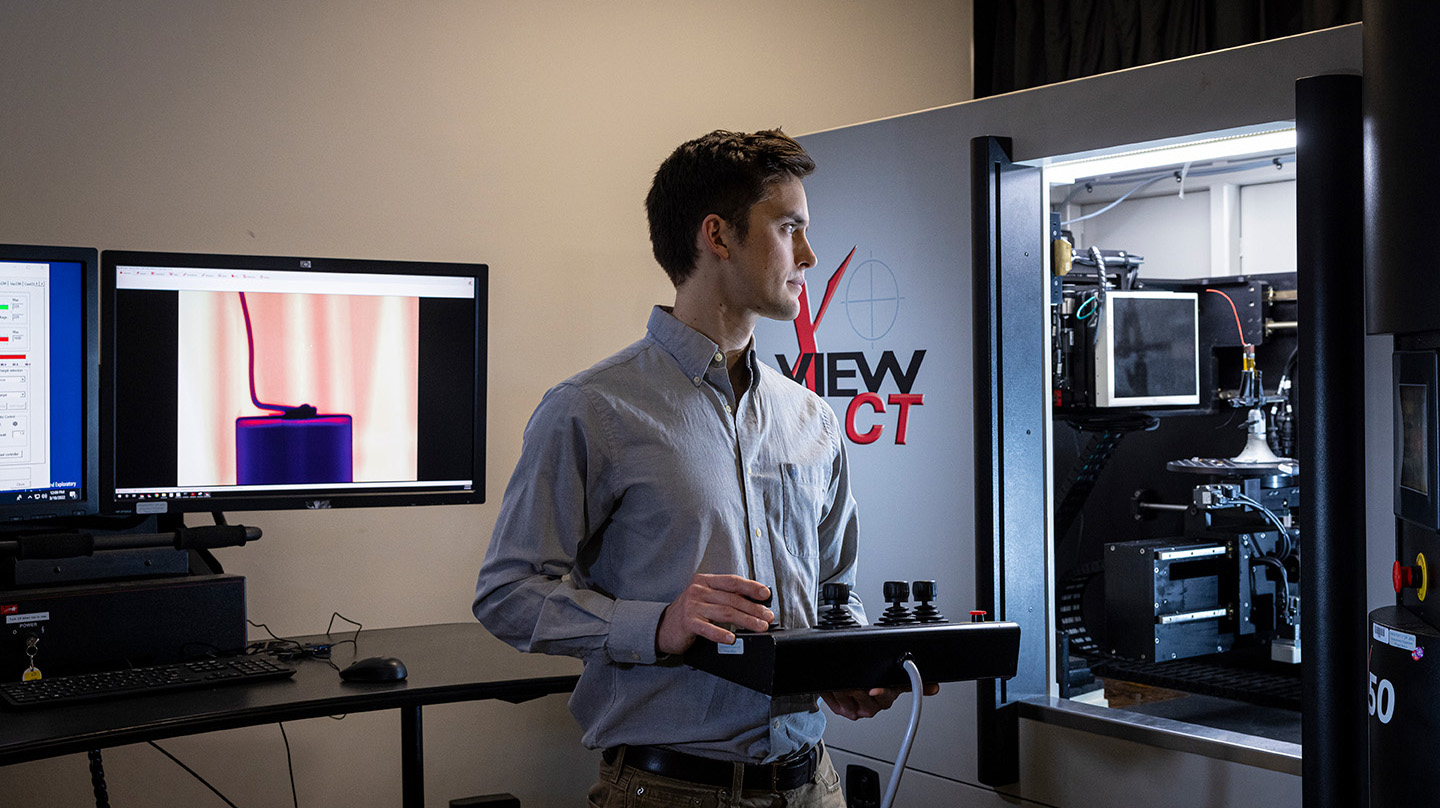
AI Reveals New Way to Strengthen Titanium Alloys and Speed Up Manufacturing Mar 6, 2025
Johns Hopkins researchers have leveraged artificial intelligence to uncover faster, more efficient ways to manufacture titanium alloy parts while maximizing mechanical performance.

Generative AI Wargaming Promises to Accelerate Mission Analysis Mar 3, 2025
A team at Johns Hopkins APL is creating an artificial intelligence-driven capability that automates much of the work that goes into designing, setting up, developing and running wargames. The effort holds promise to dramatically amplify the impact and value of wargames and similar exercises for the military and other government agencies.
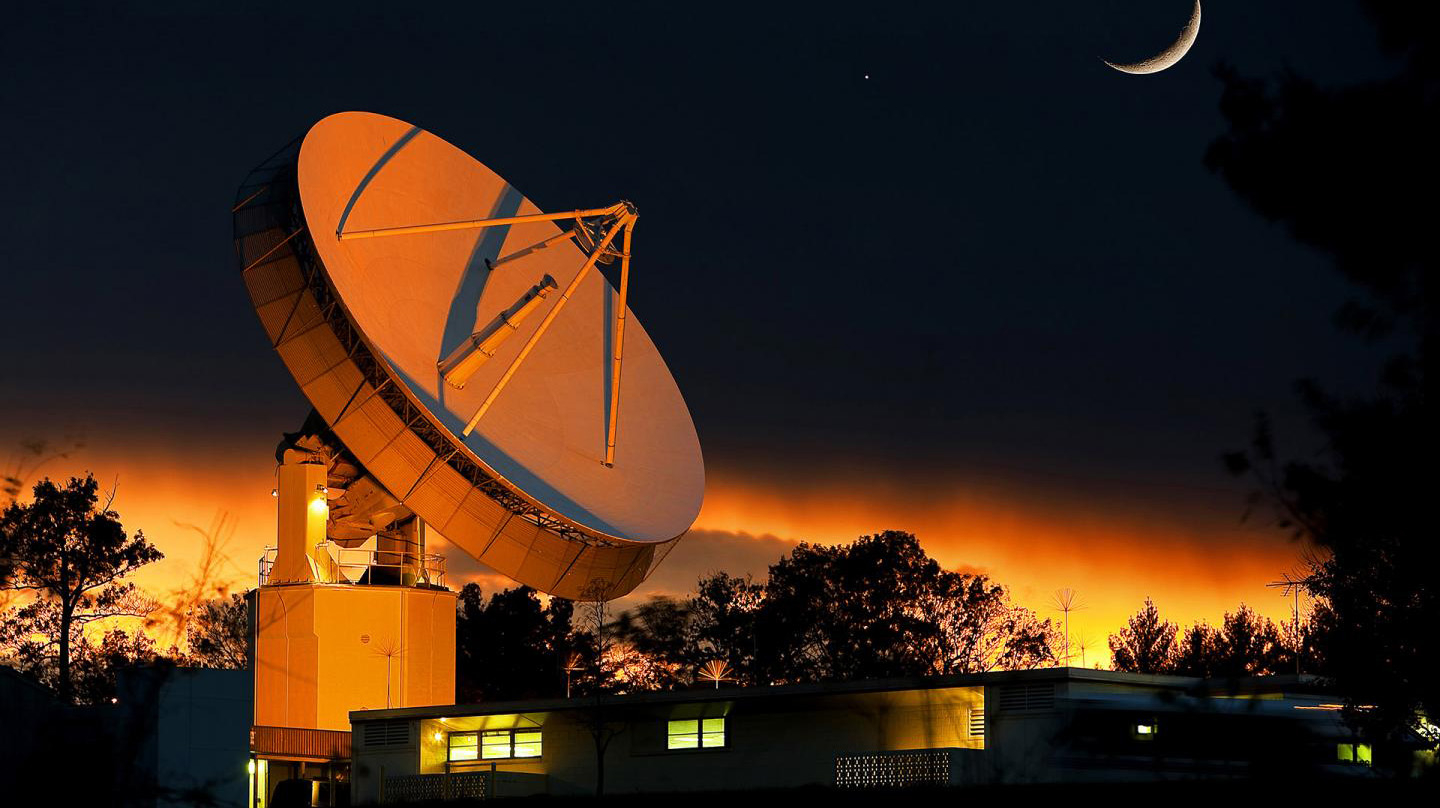
Johns Hopkins APL Satellite Communications Facility Plays Critical Role in U.S. Lunar Initiative Feb 28, 2025
A signature APL facility that dates back to the Sputnik era is playing a pivotal role for one of NASA’s most critical lunar initiatives.

Revolutionizing Battlefield Medicine: Augmented Reality for Lifesaving Trauma Care Feb 13, 2025
Johns Hopkins APL researchers are leveraging predictive anatomy visualization, artificial intelligence and real-time ultrasound to help medics provide faster and more accurate medical care in the field.
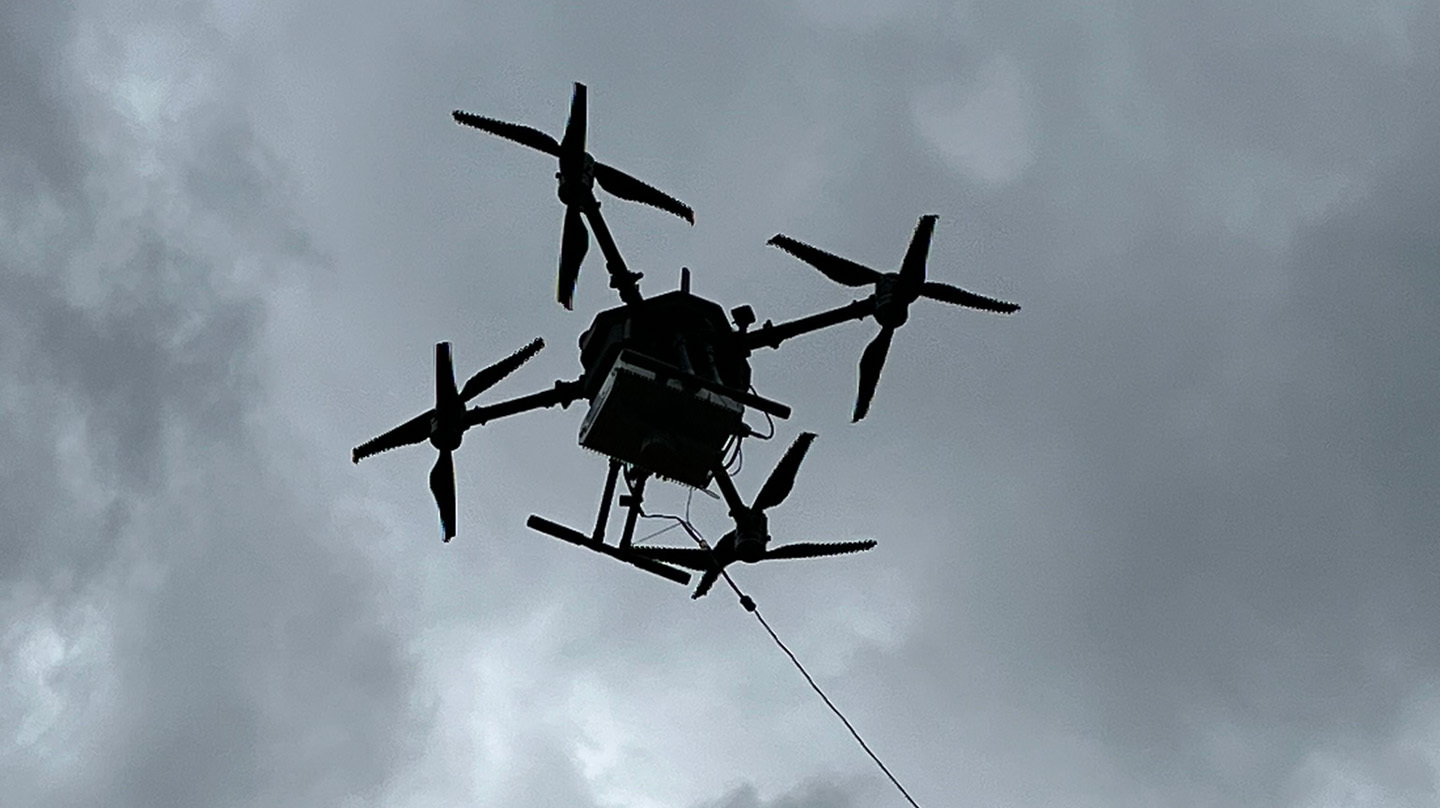
Nimble Cellular Networks Keep Tactical Users Connected Jan 7, 2025
Johns Hopkins APL researchers are contributing to the development of a mobile cellular system that can be installed in a small uncrewed aerial vehicle to give warfighters and first responders communications connectivity in austere environments.

Parker Solar Probe Makes History With Closest Pass to the Sun Dec 27, 2024
NASA’s mission to “touch” the Sun has confirmed that it survived its record-breaking closest approach to the Sun’s surface on Dec. 24. Breaking its previous record by flying just 3.8 million miles (around 6.1 million kilometers) above the surface of the Sun, NASA’s Parker Solar Probe hurtled through the solar atmosphere at a blazing 430,000 miles per hour (692,000 kilometers per hour) — faster than any human-made object has ever moved.

From the Battlefield to Breast Cancer Detection, Johns Hopkins APL Technologies Find Dual Impact Dec 4, 2024
APL researchers used artificial intelligence and two APL-patented imaging technologies to improve the accuracy and efficiency of breast cancer screening. The imaging technologies were originally created for satellite and military applications.
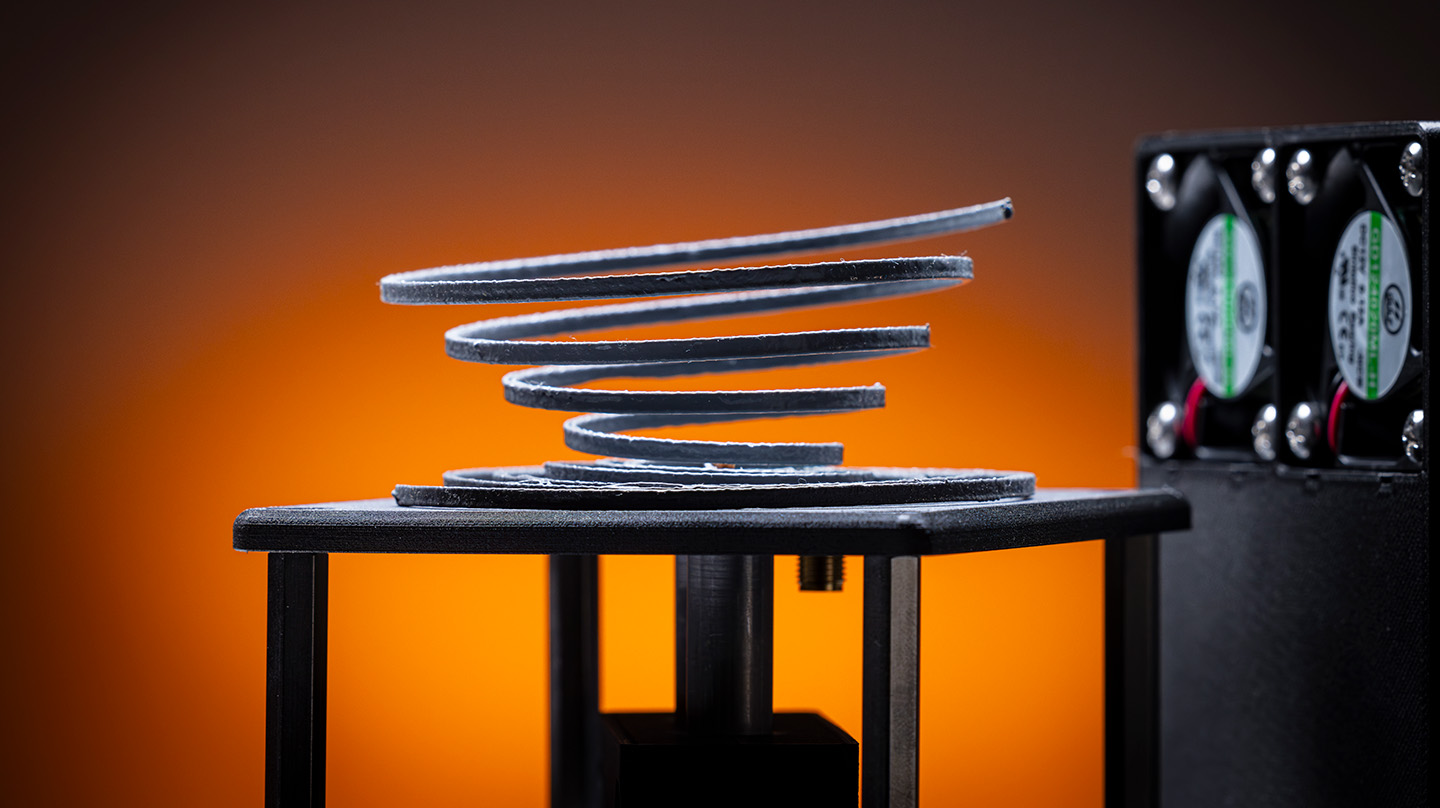
Shape-Shifting Antenna Poised to Transform Communications Nov 26, 2024
Johns Hopkins APL researchers have leveraged cutting-edge additive manufacturing techniques and shape memory alloys to create an antenna that can change its shape — and offers a range of potential commercial, military and scientific applications.
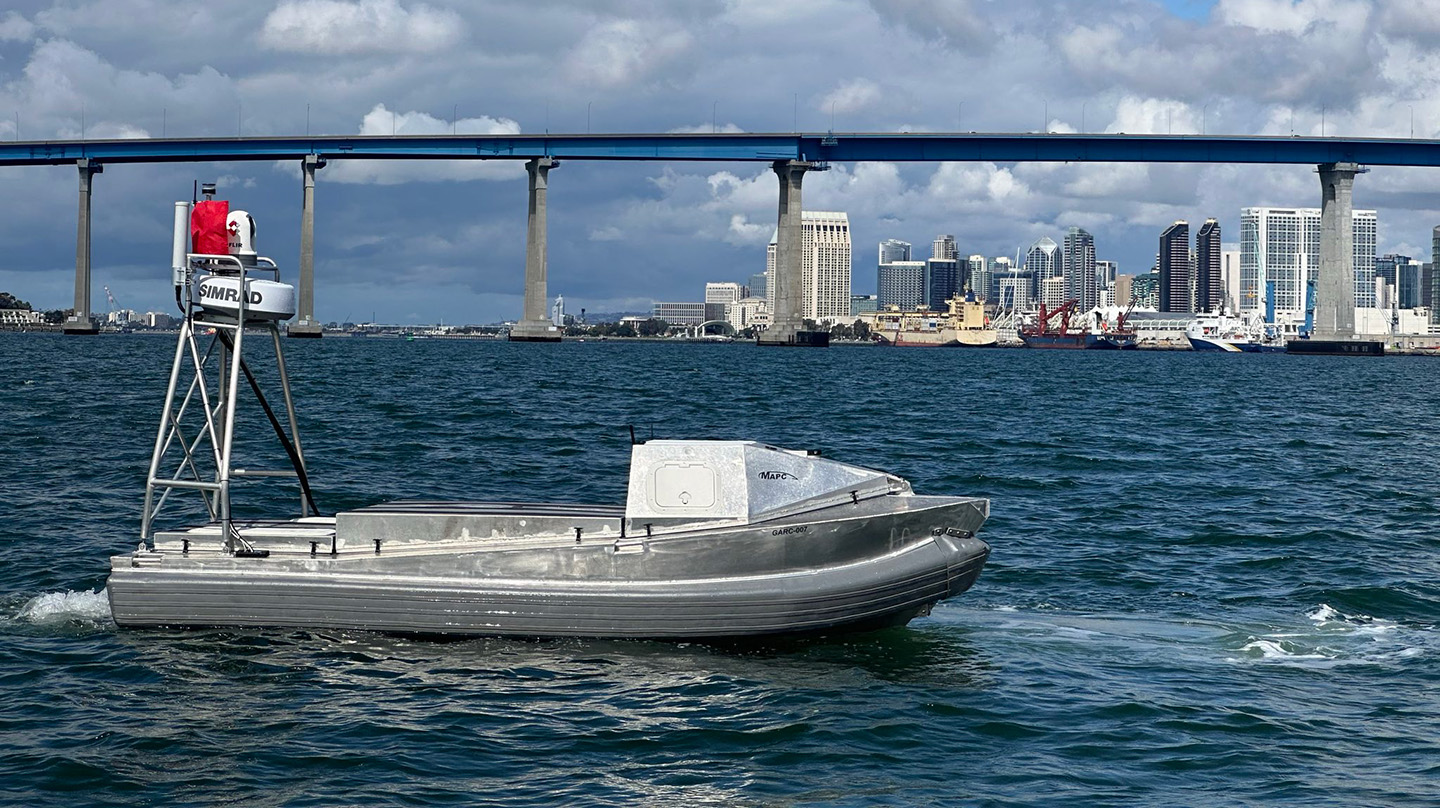
Rapidly Fielding Autonomous Systems at Sea Sep 24, 2024
As the Navy continues to develop and deploy autonomous systems at sea, Johns Hopkins APL researchers are lending their expertise and insights to rapidly integrate, test and assess low-cost uncrewed maritime systems.

U.S. Air Force, Johns Hopkins APL Hypersonic Experiment Soars and Collects Vital Data Sep 5, 2024
The BOLT-1B experiment collected data about boundary layer transition (the flow of air around the skin of a hypersonic vehicle), which increases hypersonic vehicle drag and aerodynamic heating. That data will be used by researchers to validate new and more accurate modeling and prediction methods during the design of hypersonic vehicles.
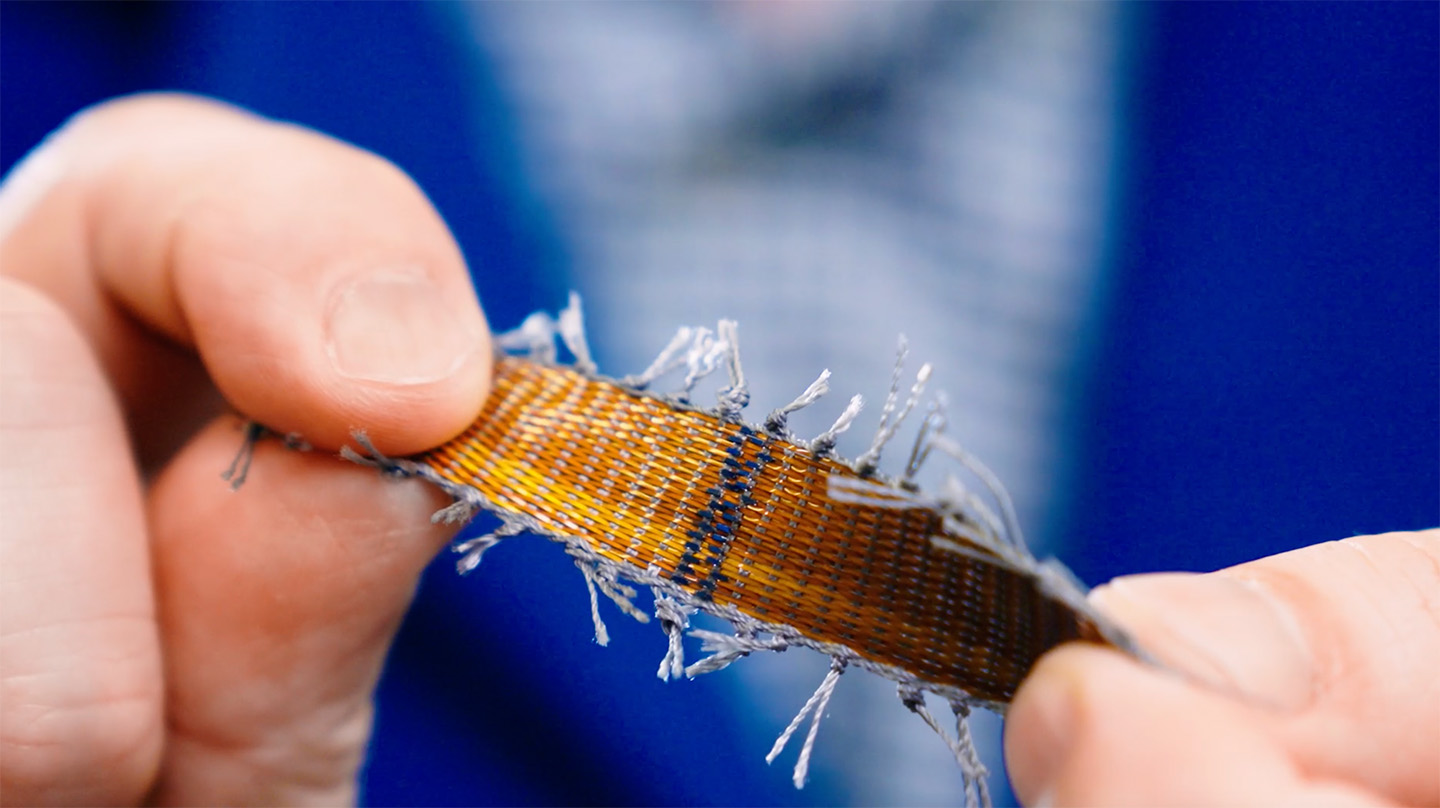
Breakthrough Process Creates Next Generation of Powered Wearable Fibers May 22, 2024
Researchers at Johns Hopkins APL have established new, scalable methods of developing battery- and solar-powered fibers, making it theoretically possible for electrical energy to be harvested from, and stored in, the clothing people wear. These fibers could power high-performance wearable electronics that breathe, stretch and wash just like conventional textiles.